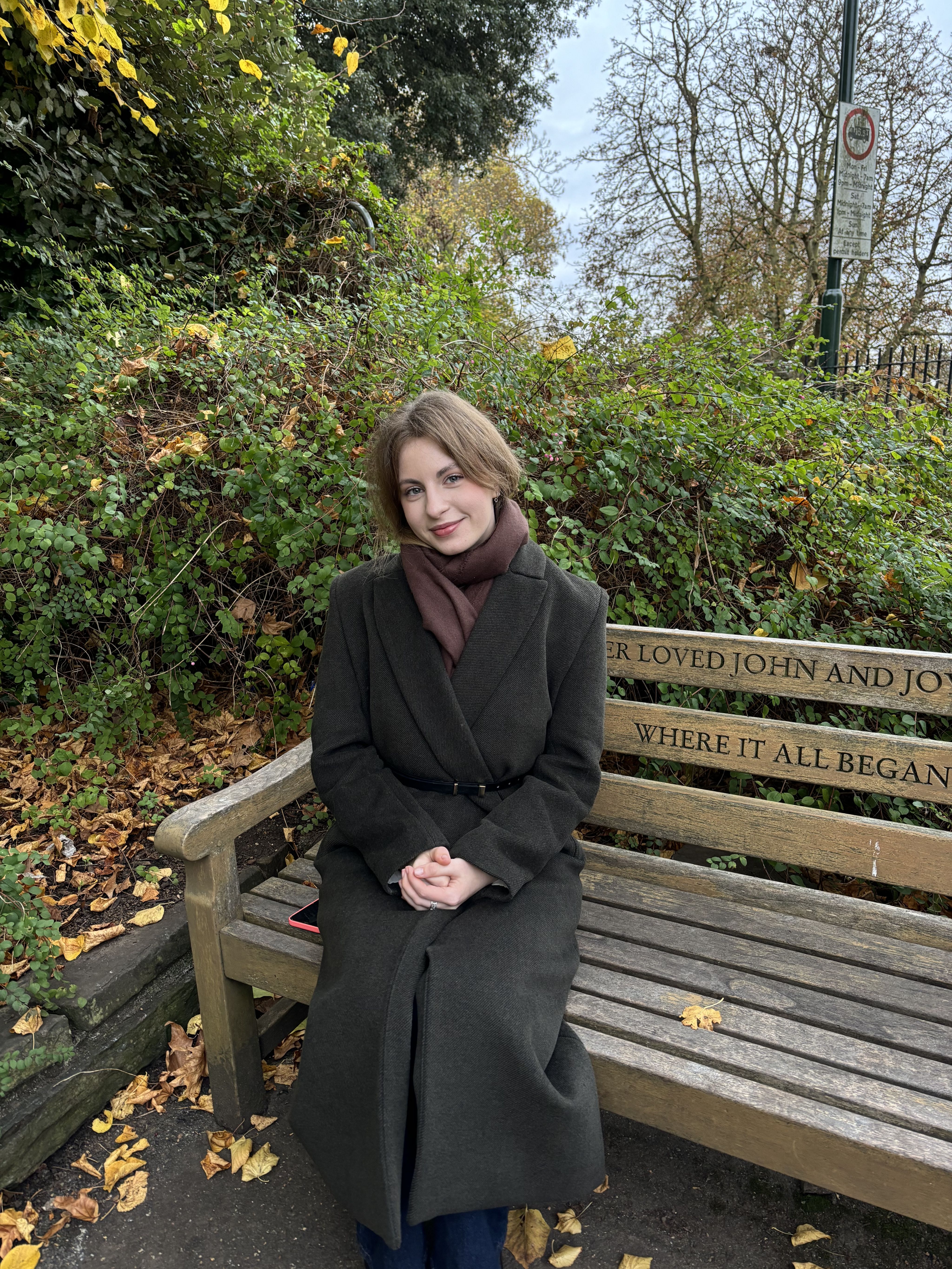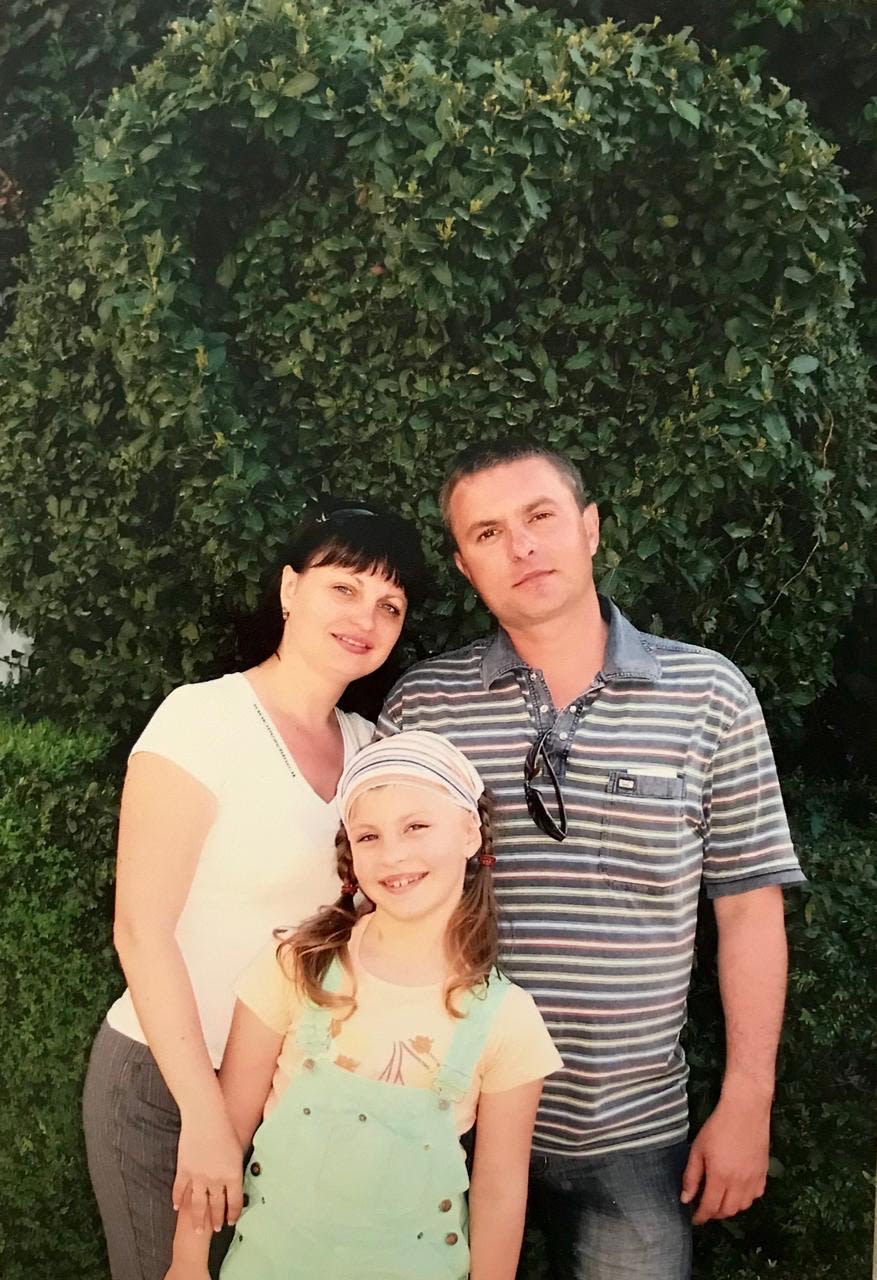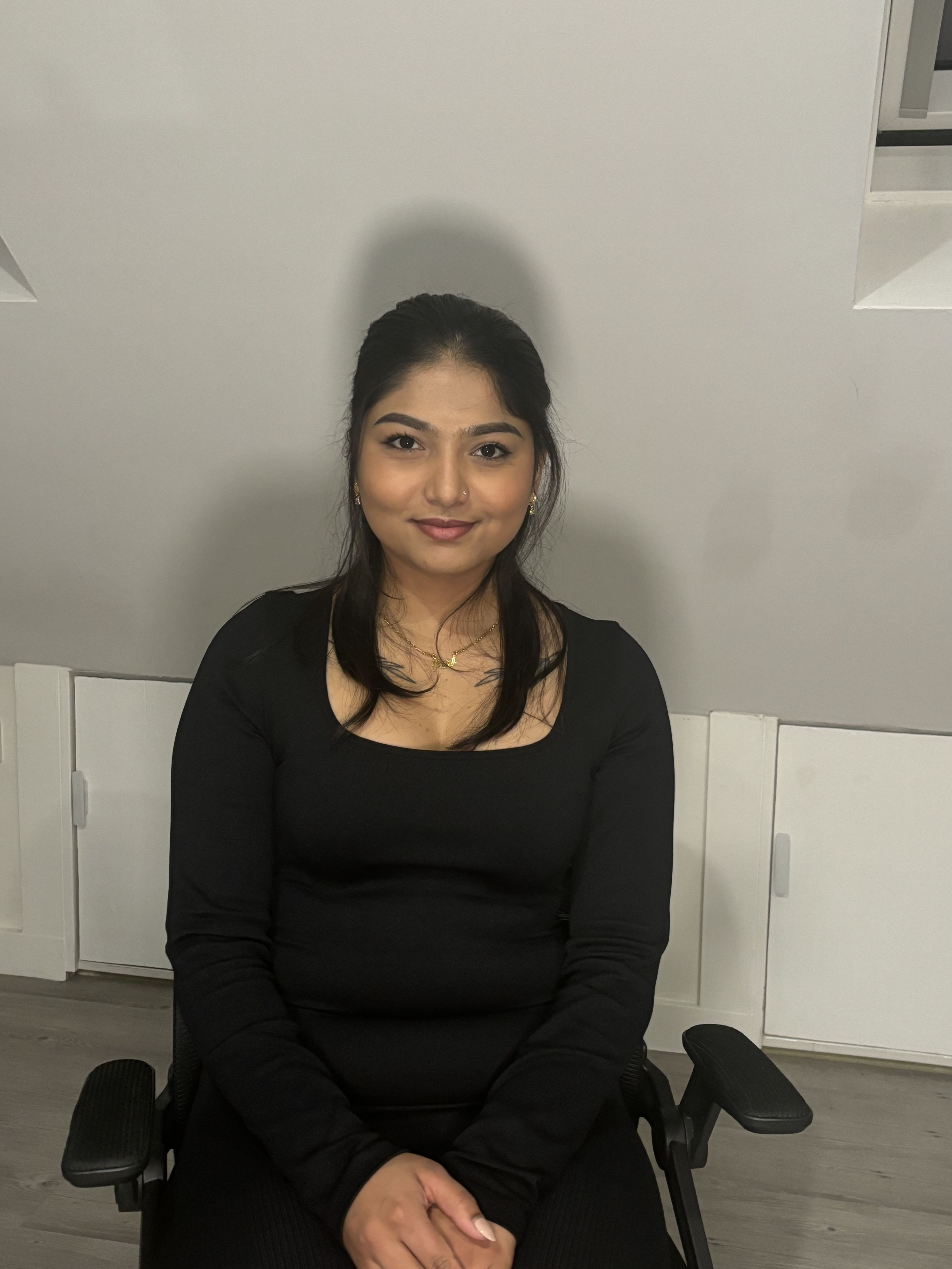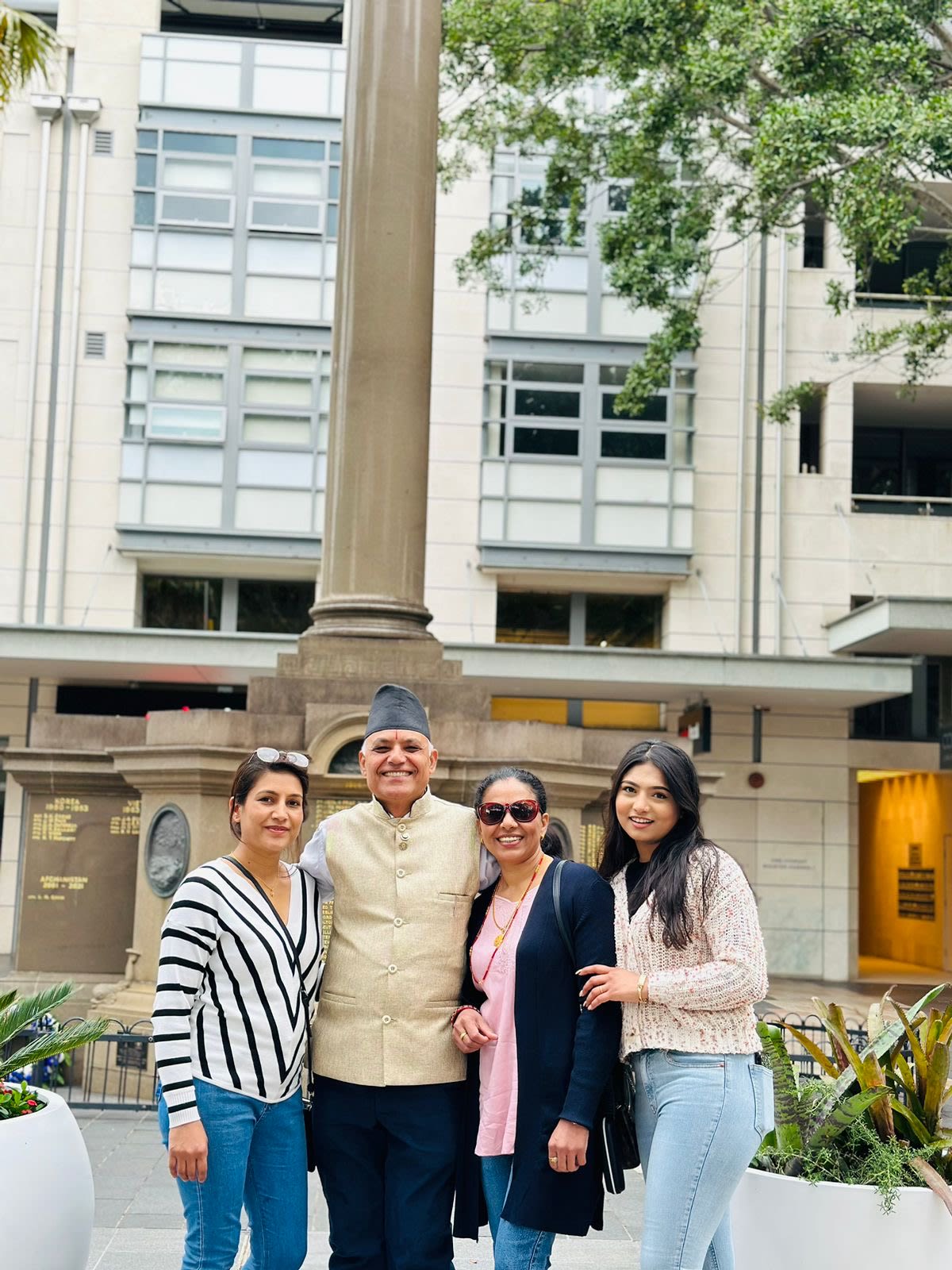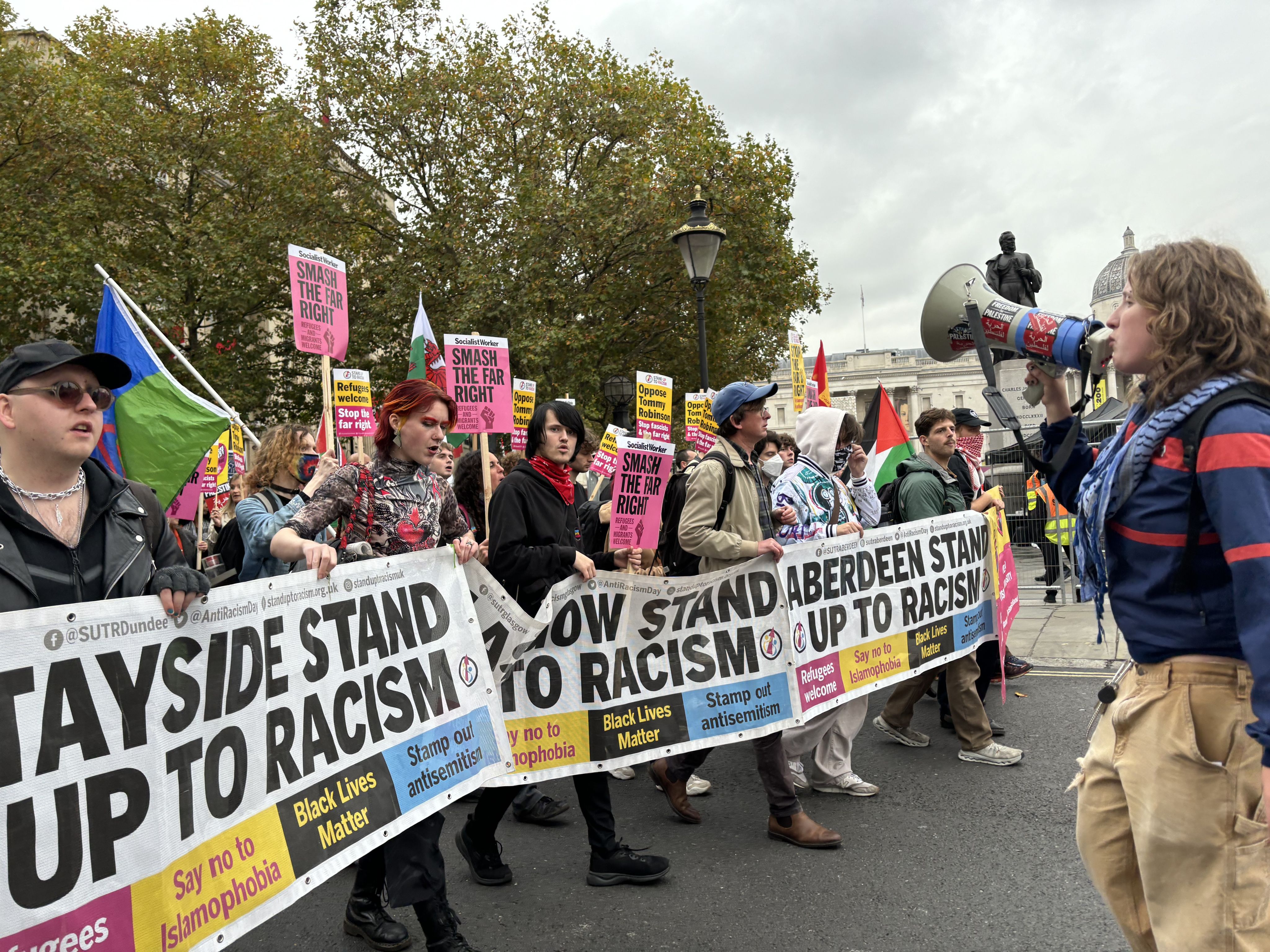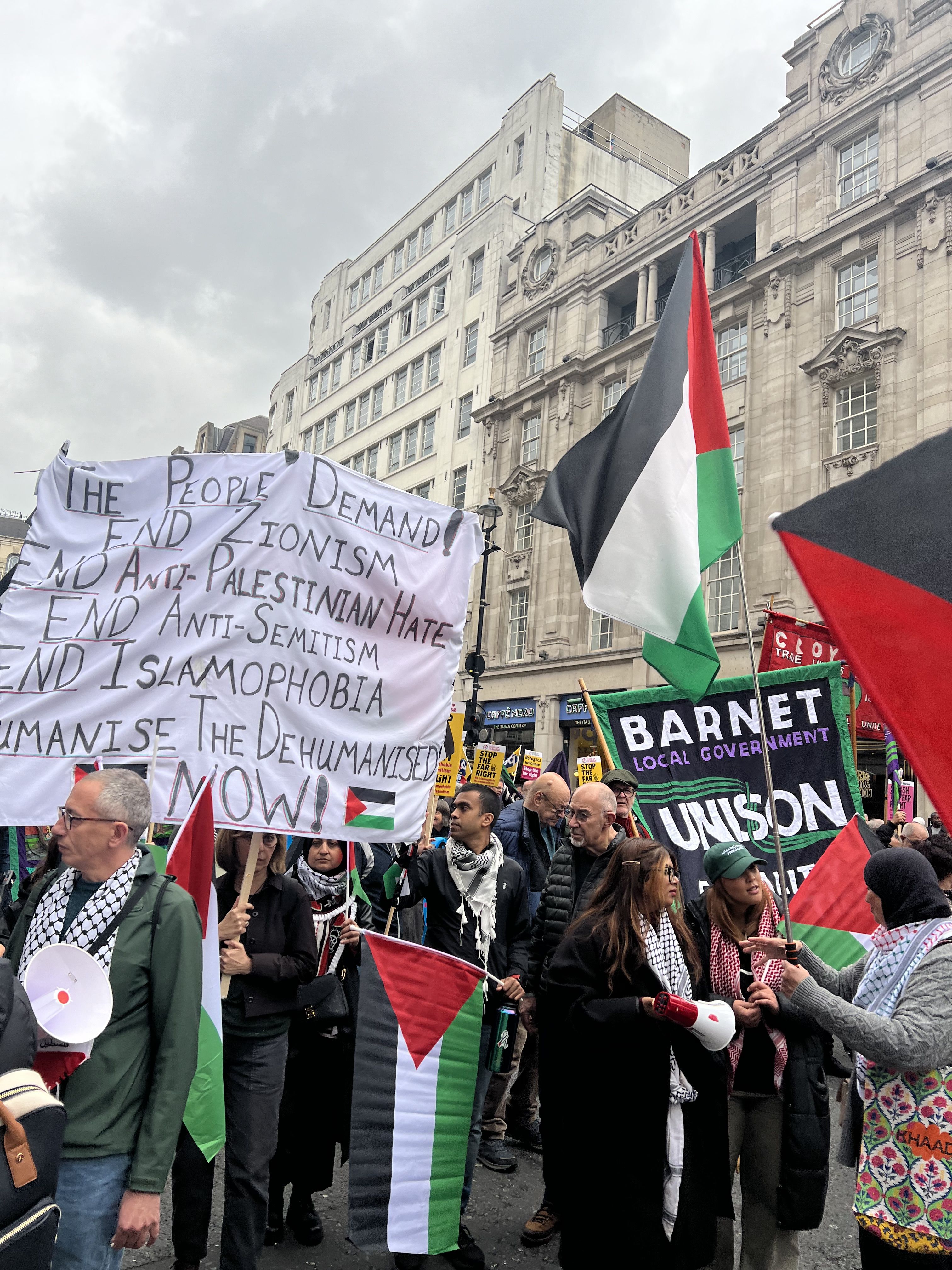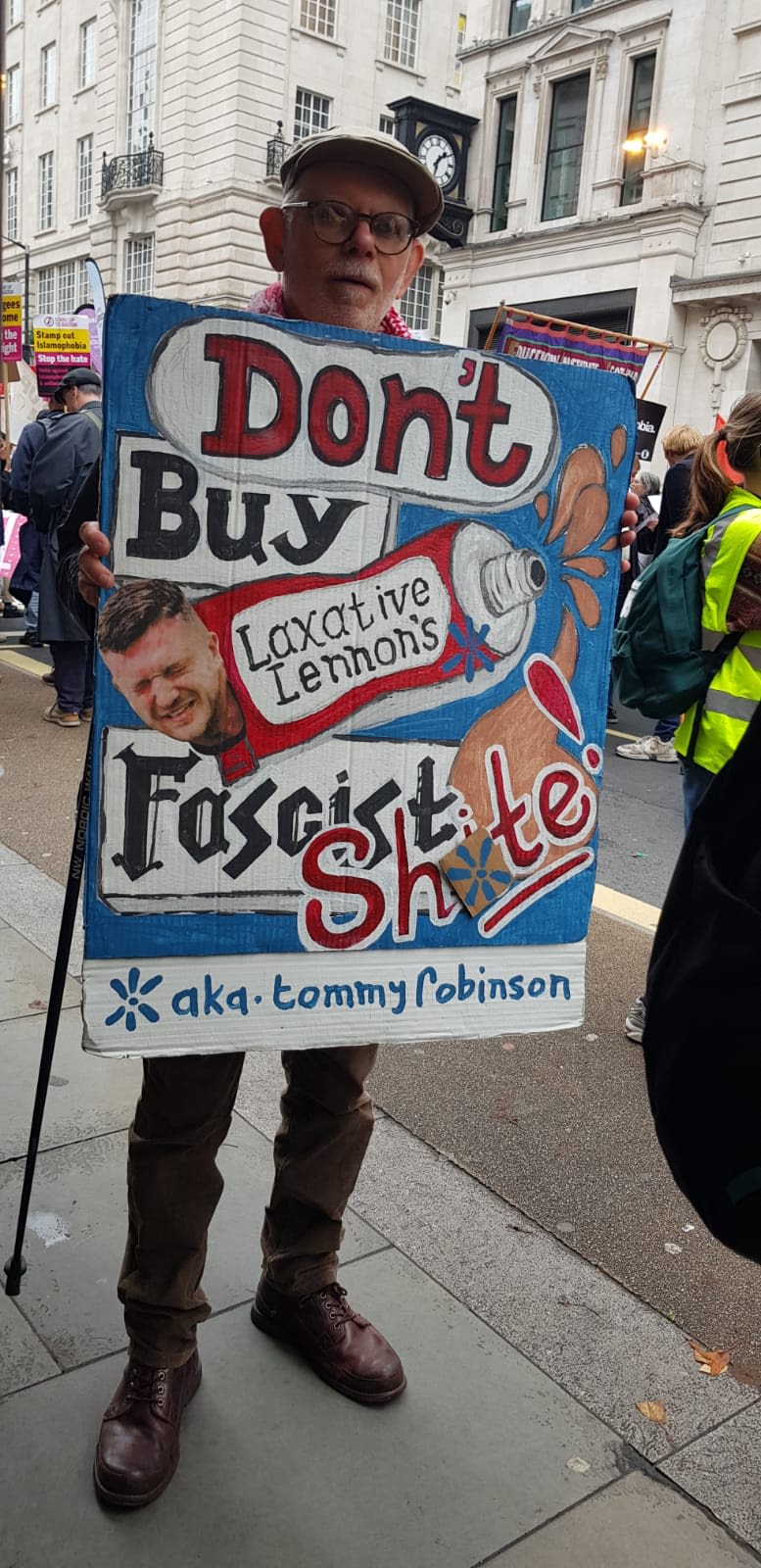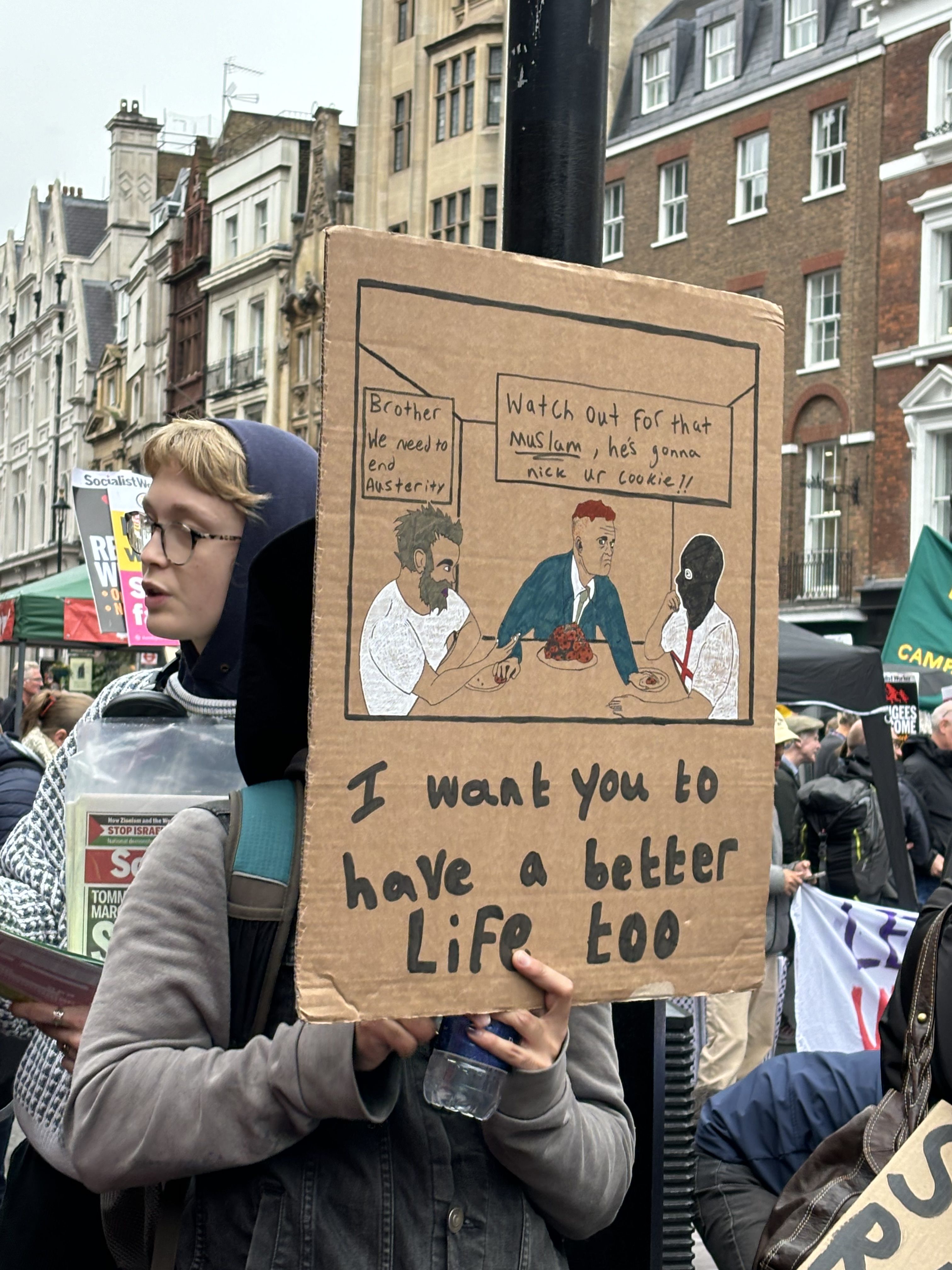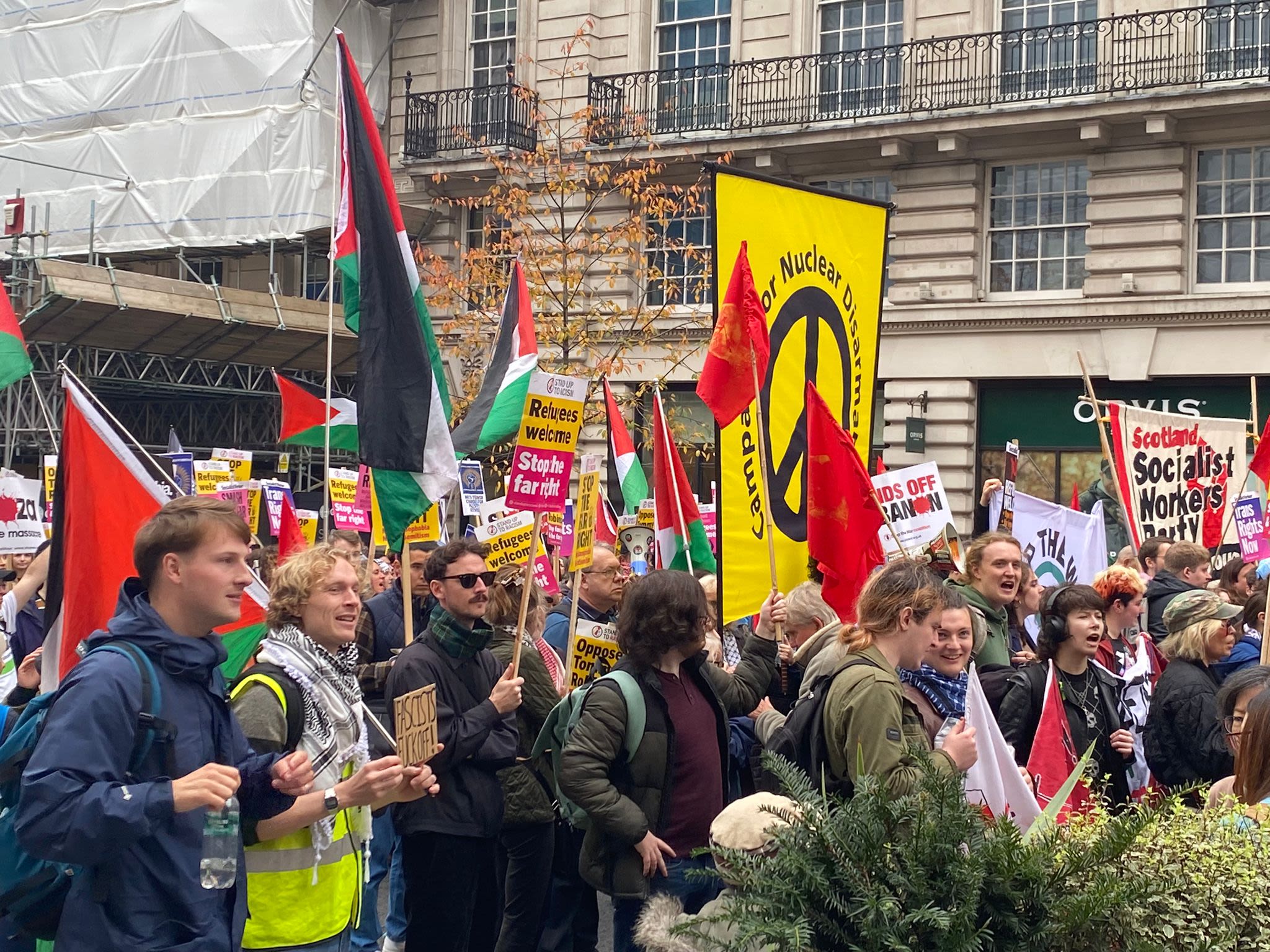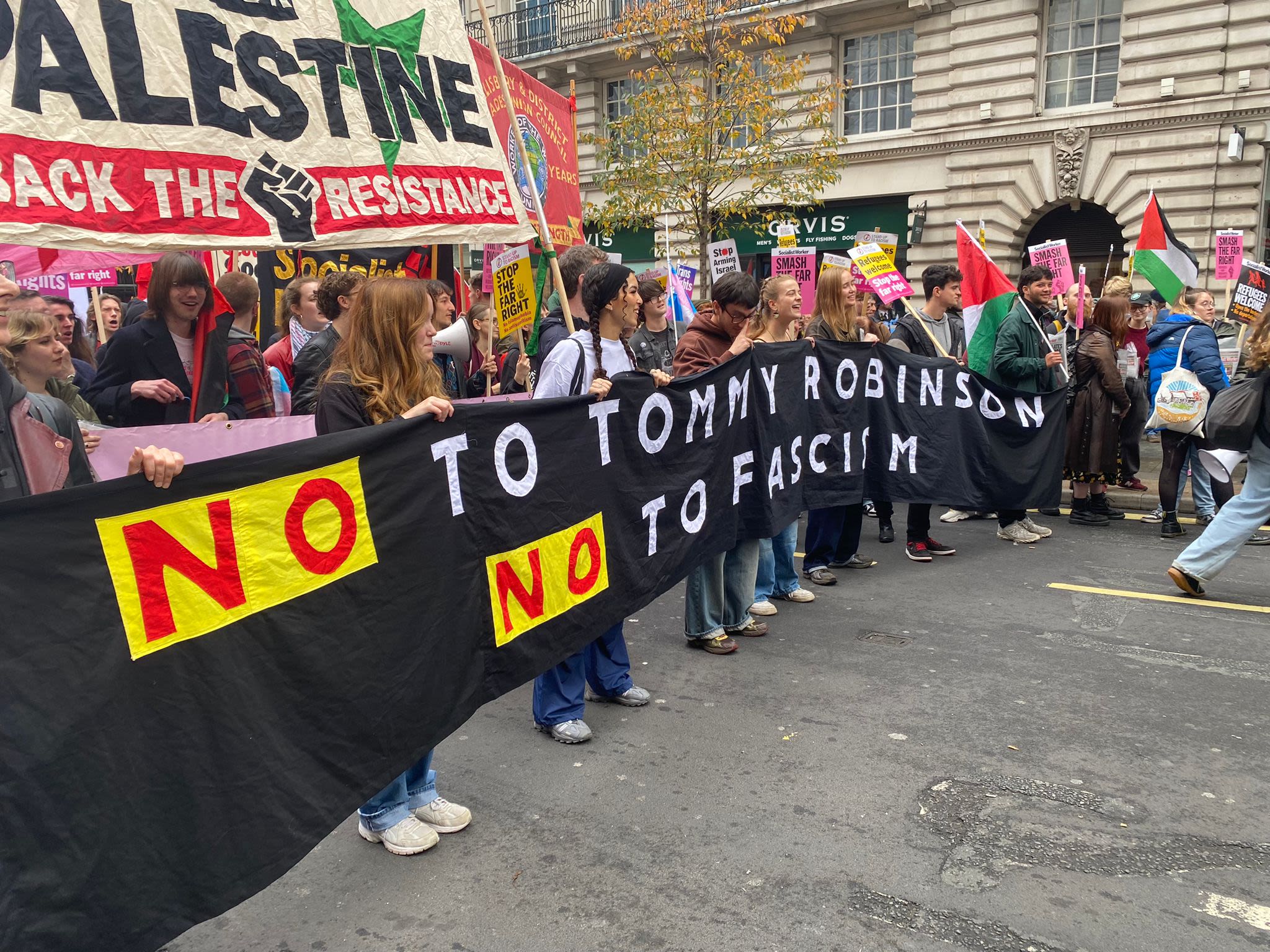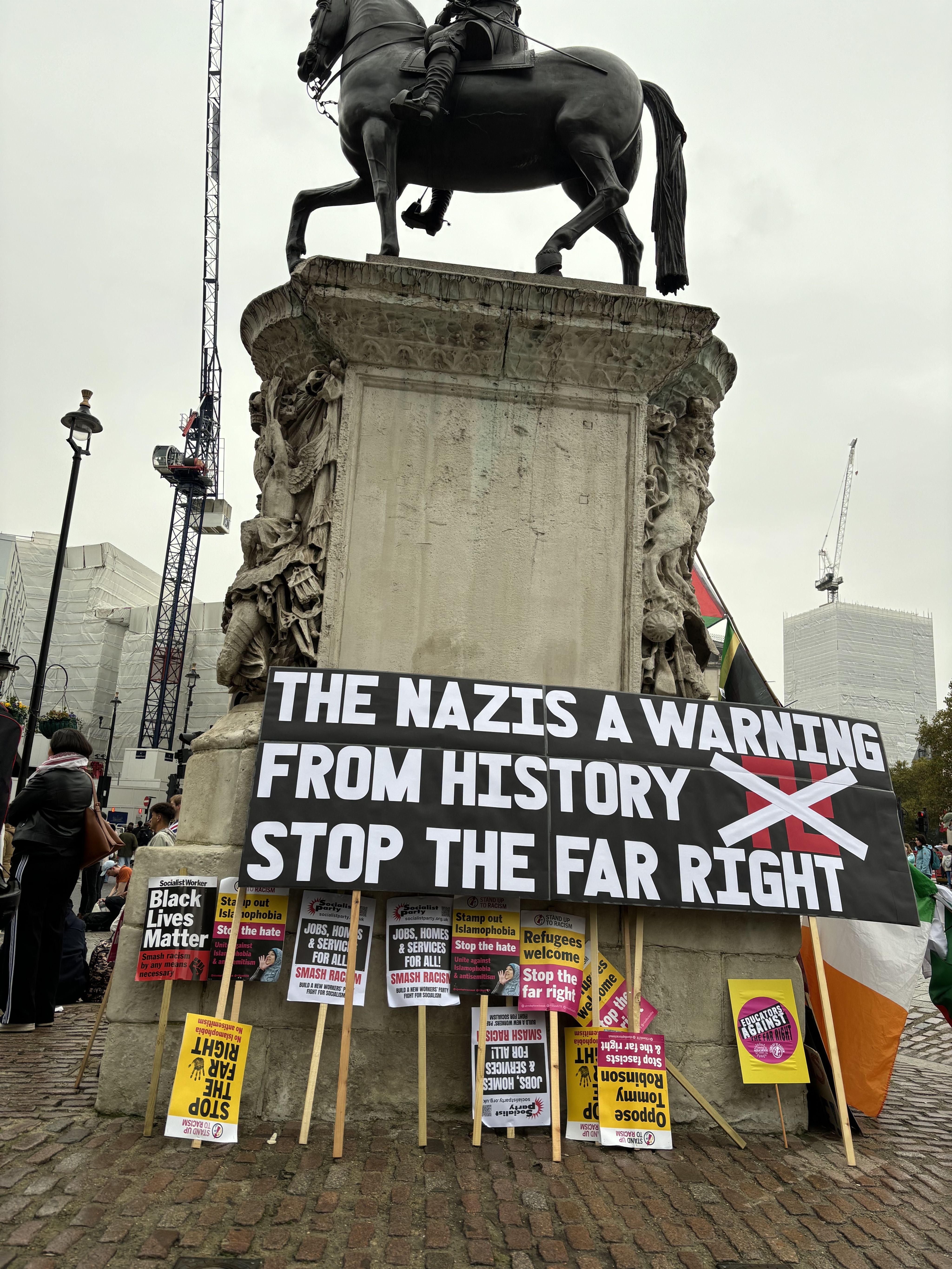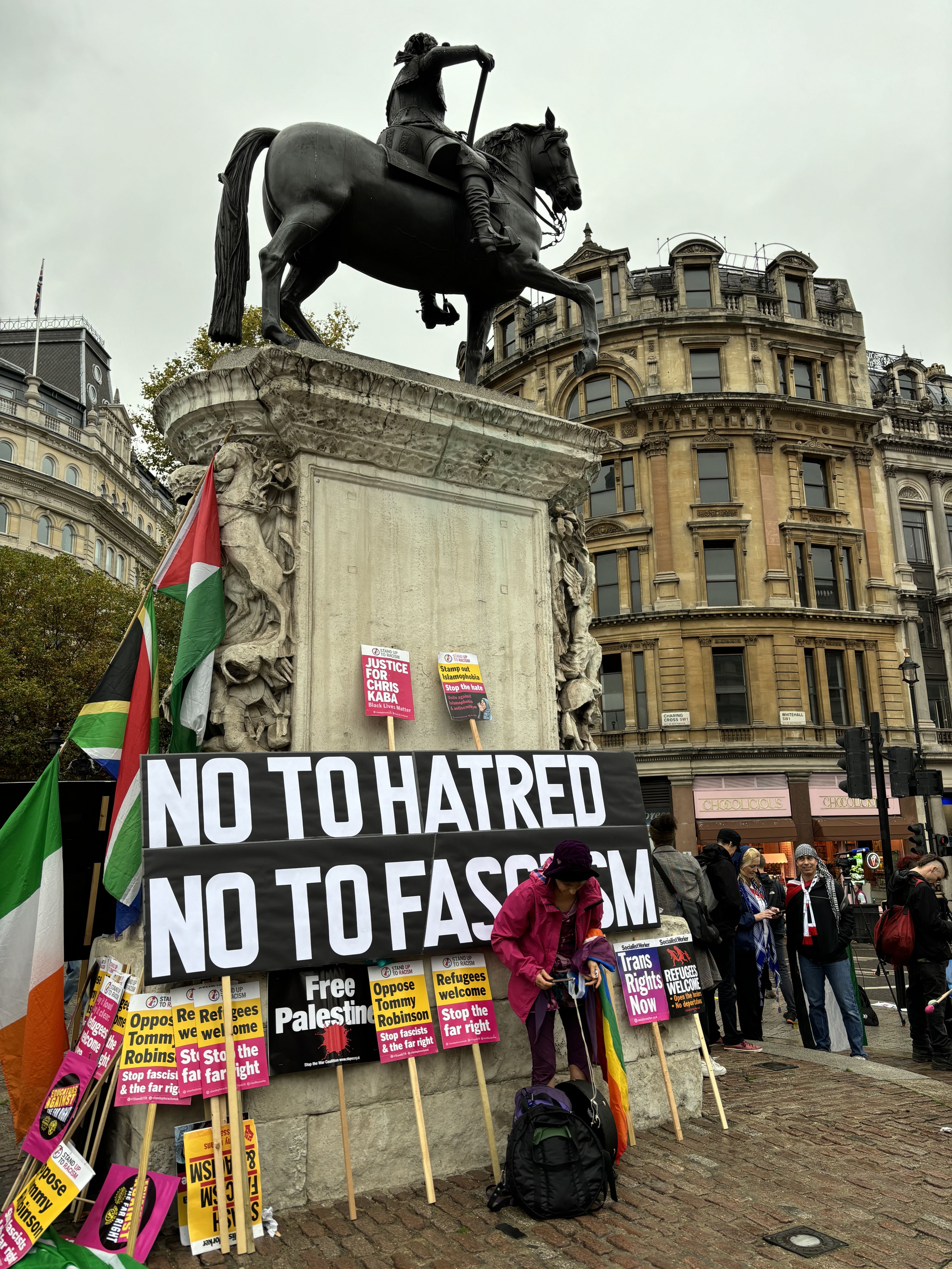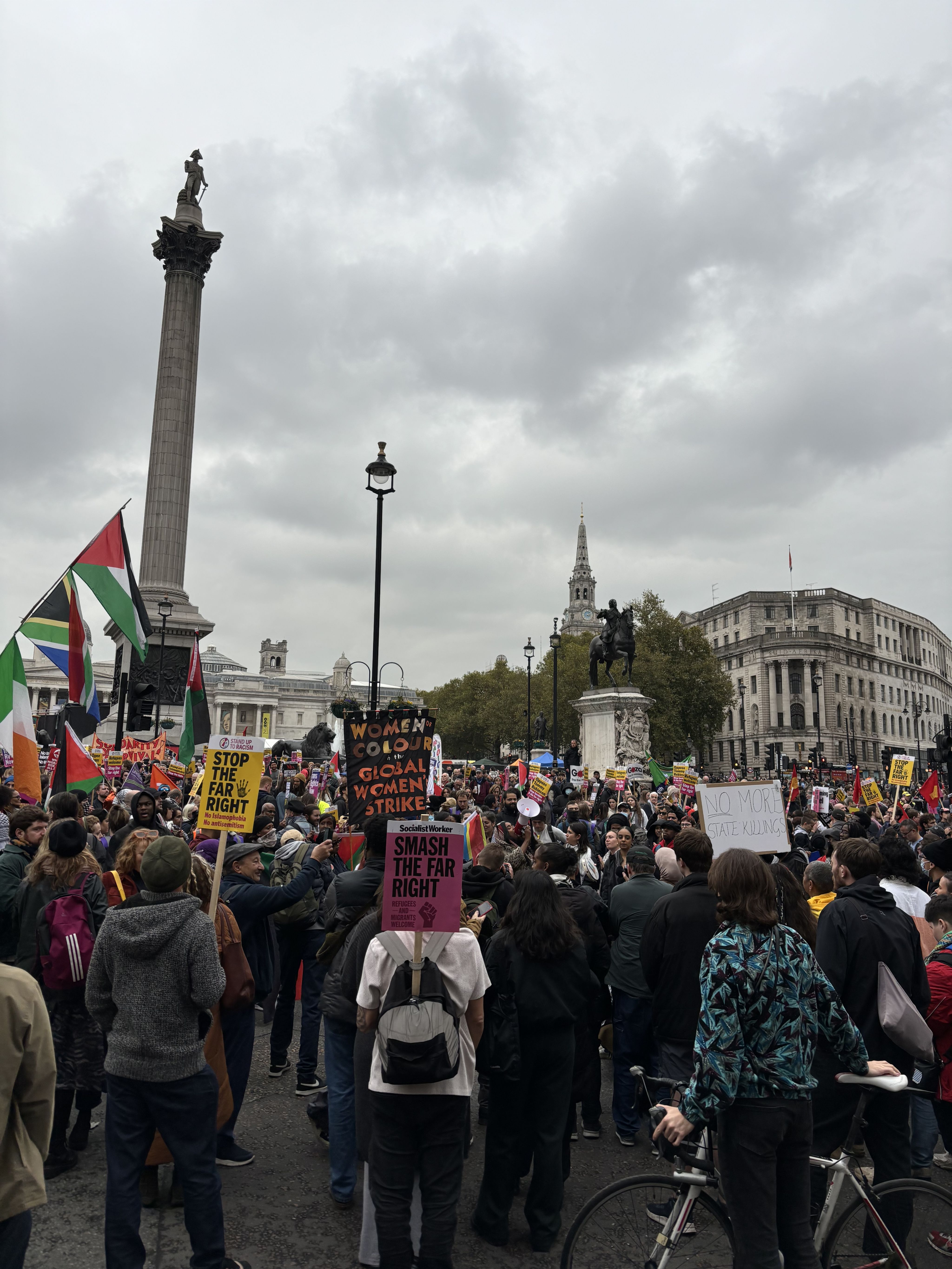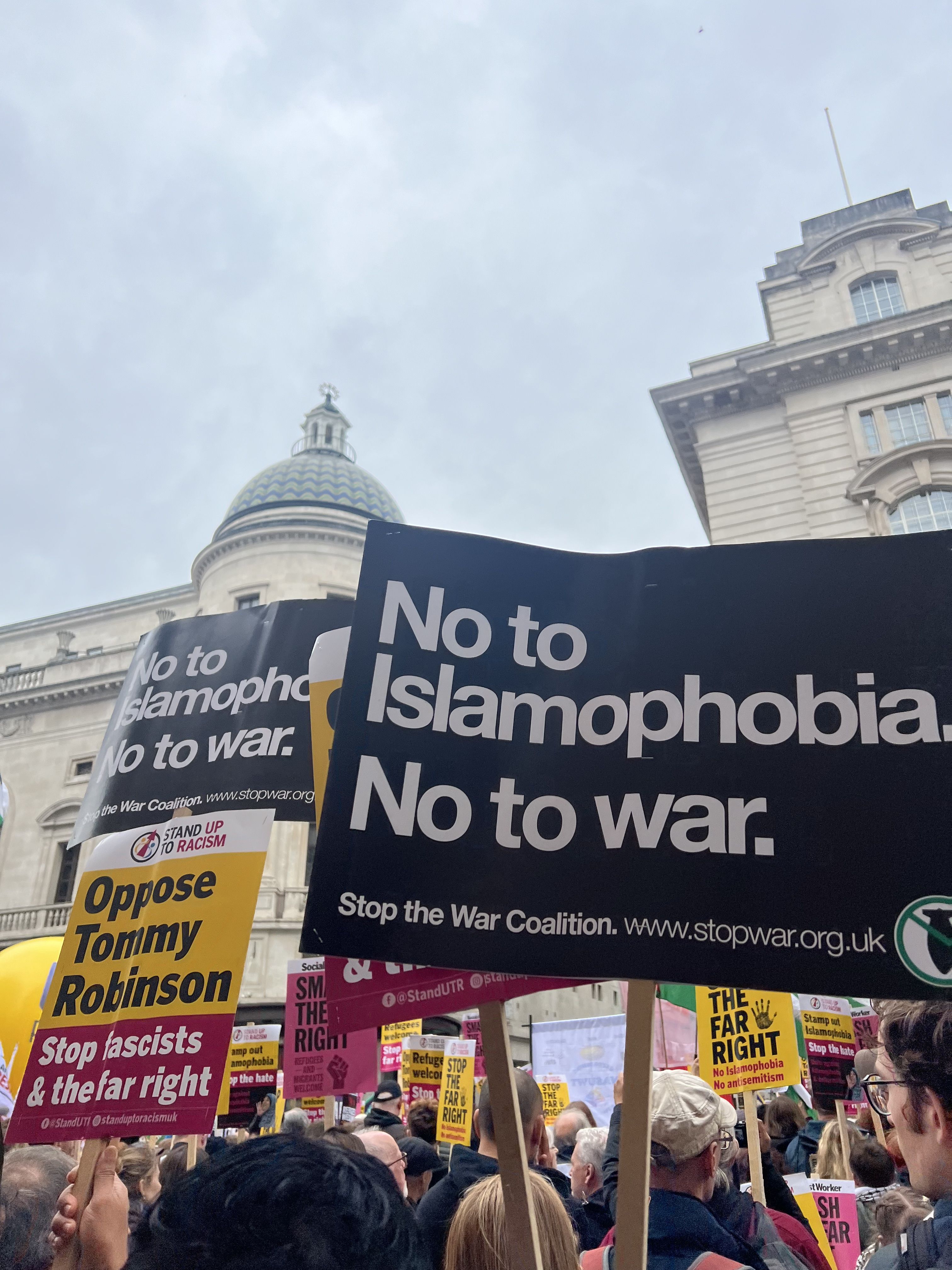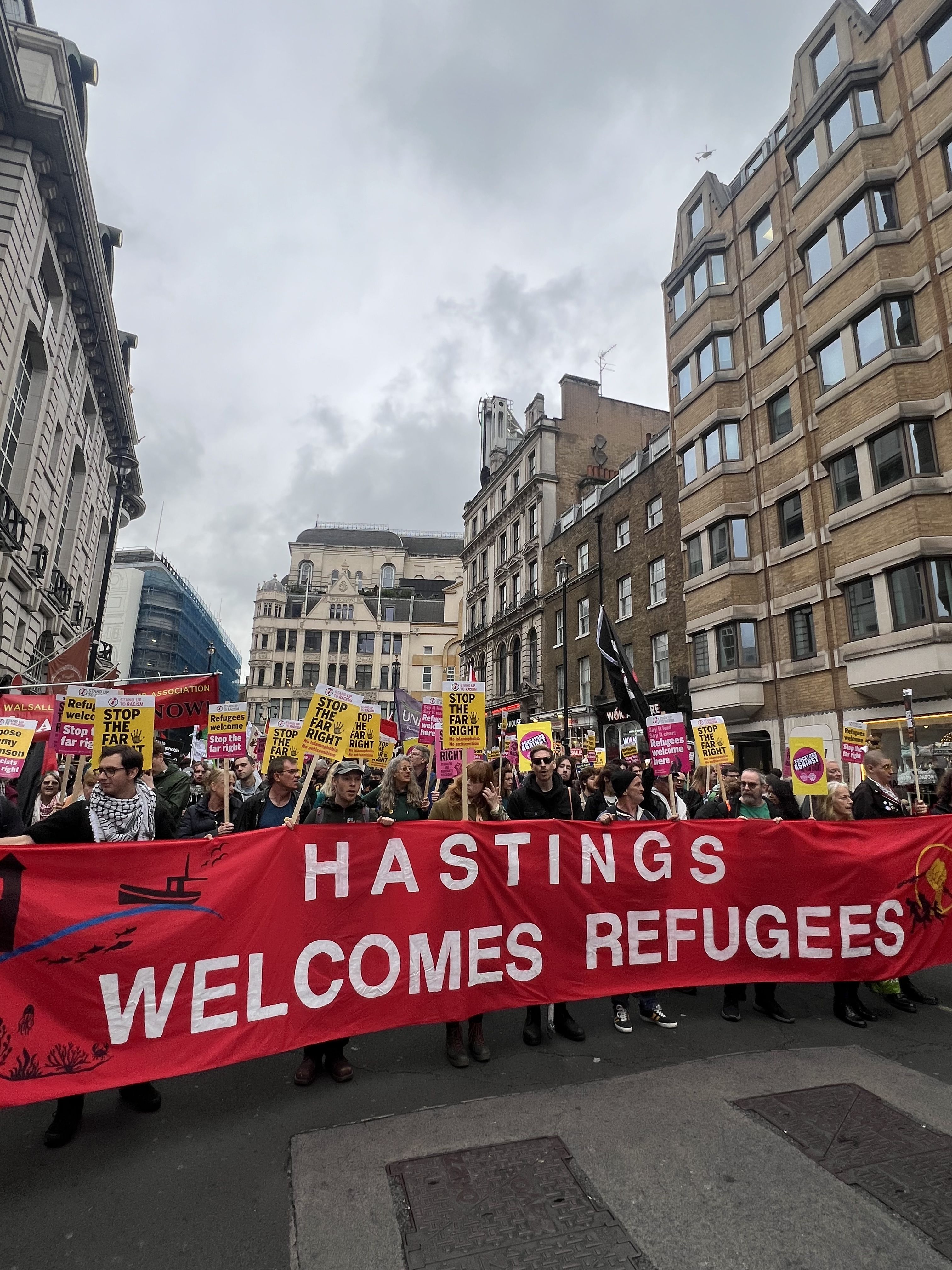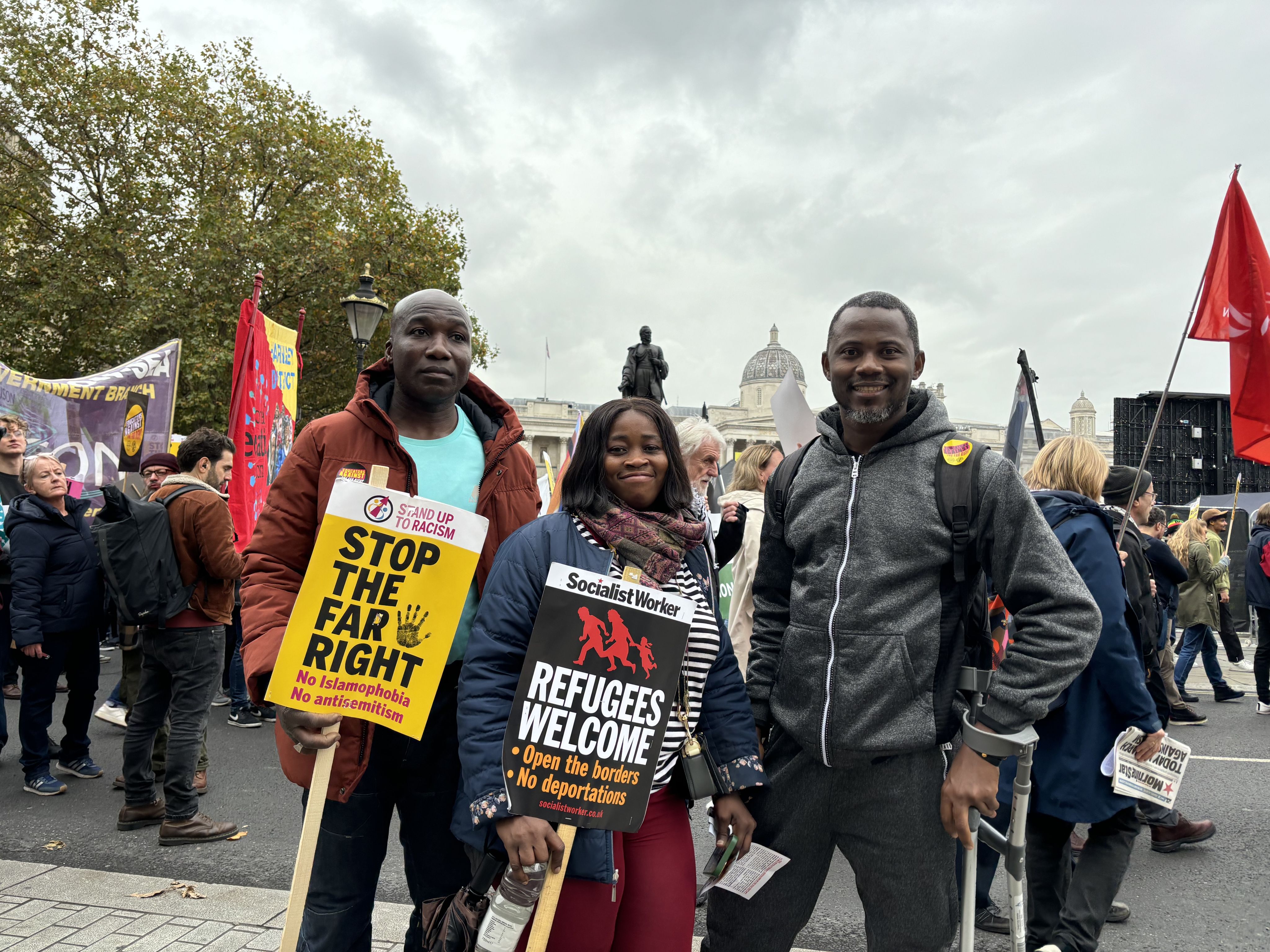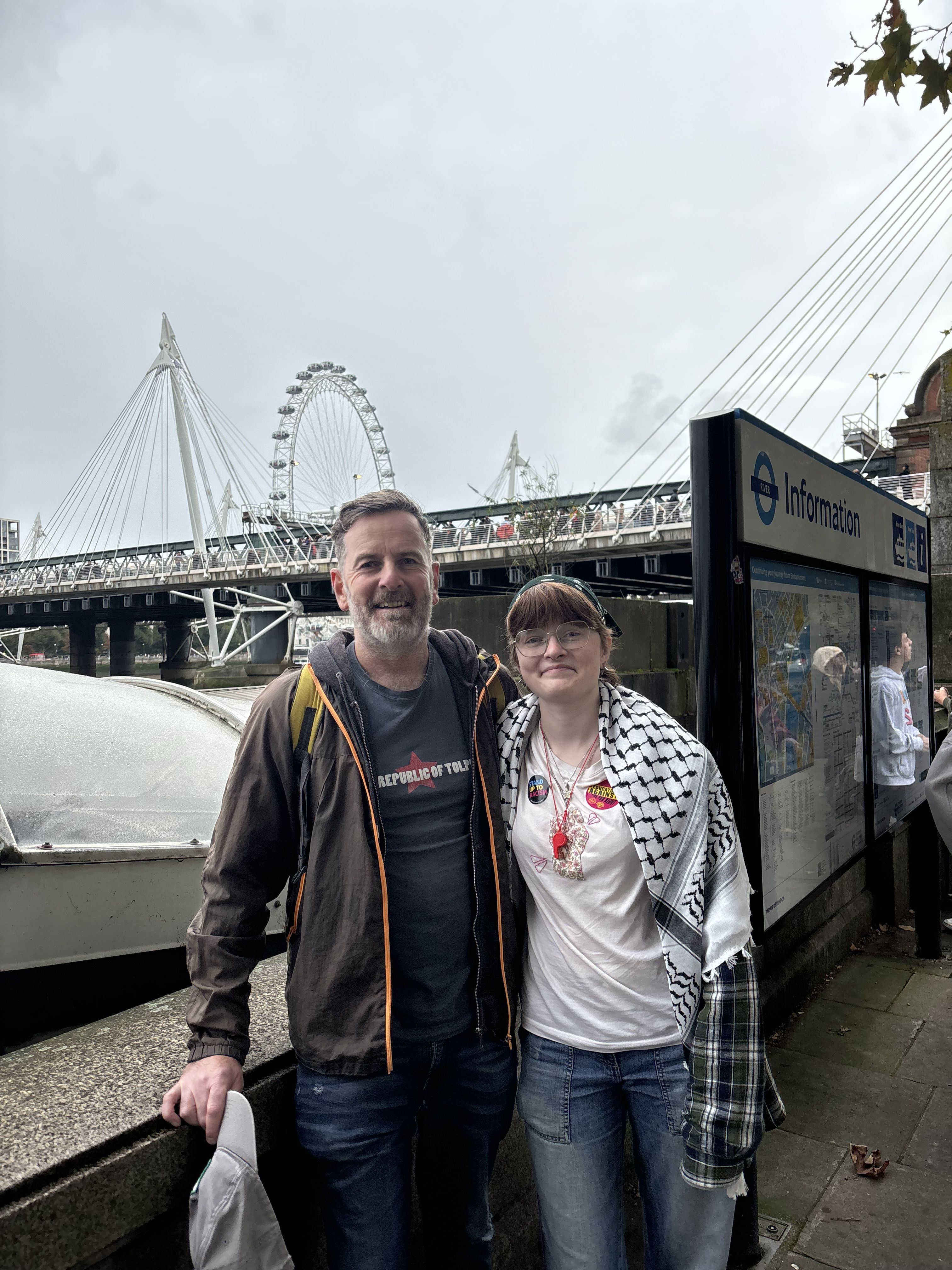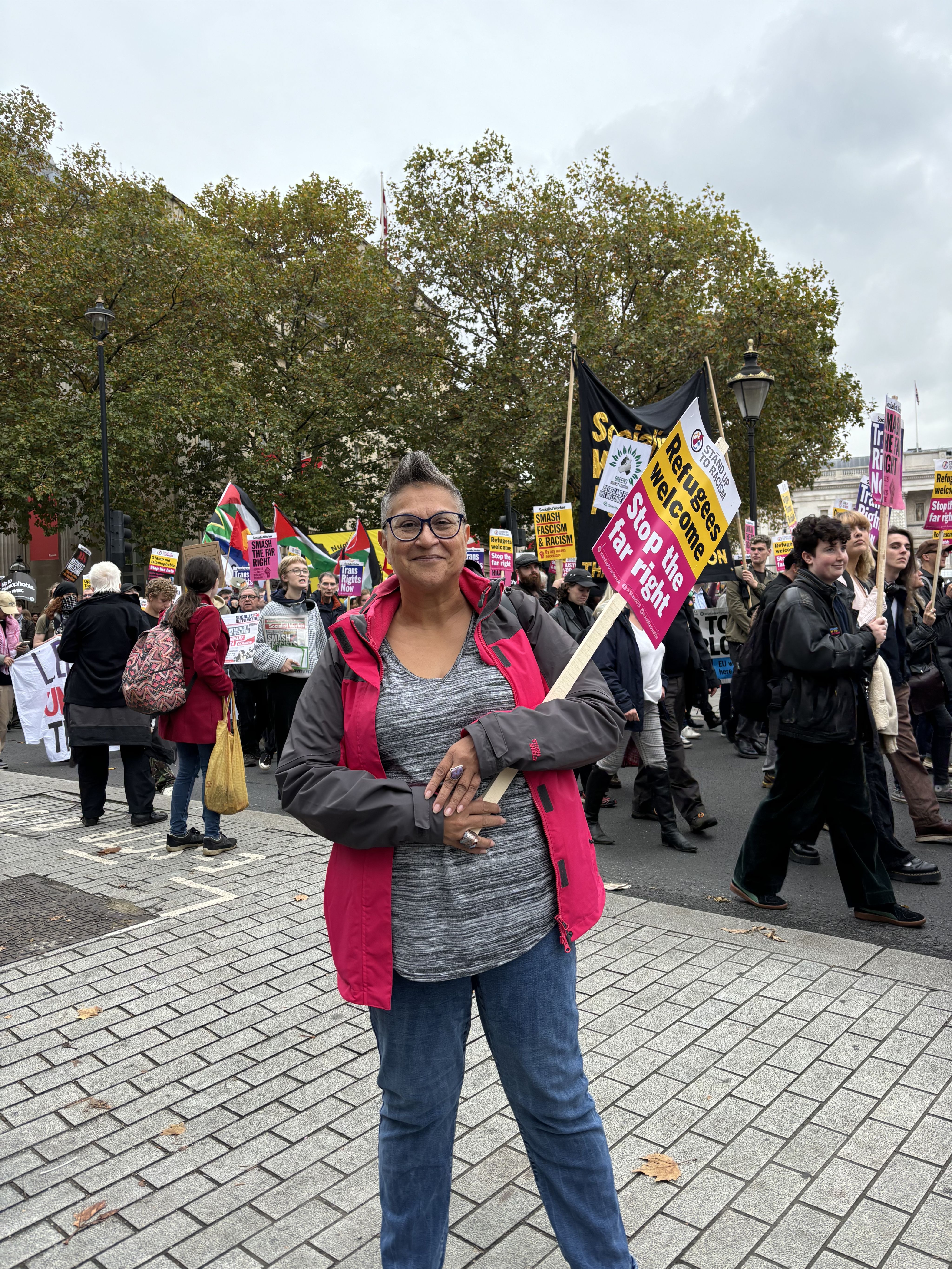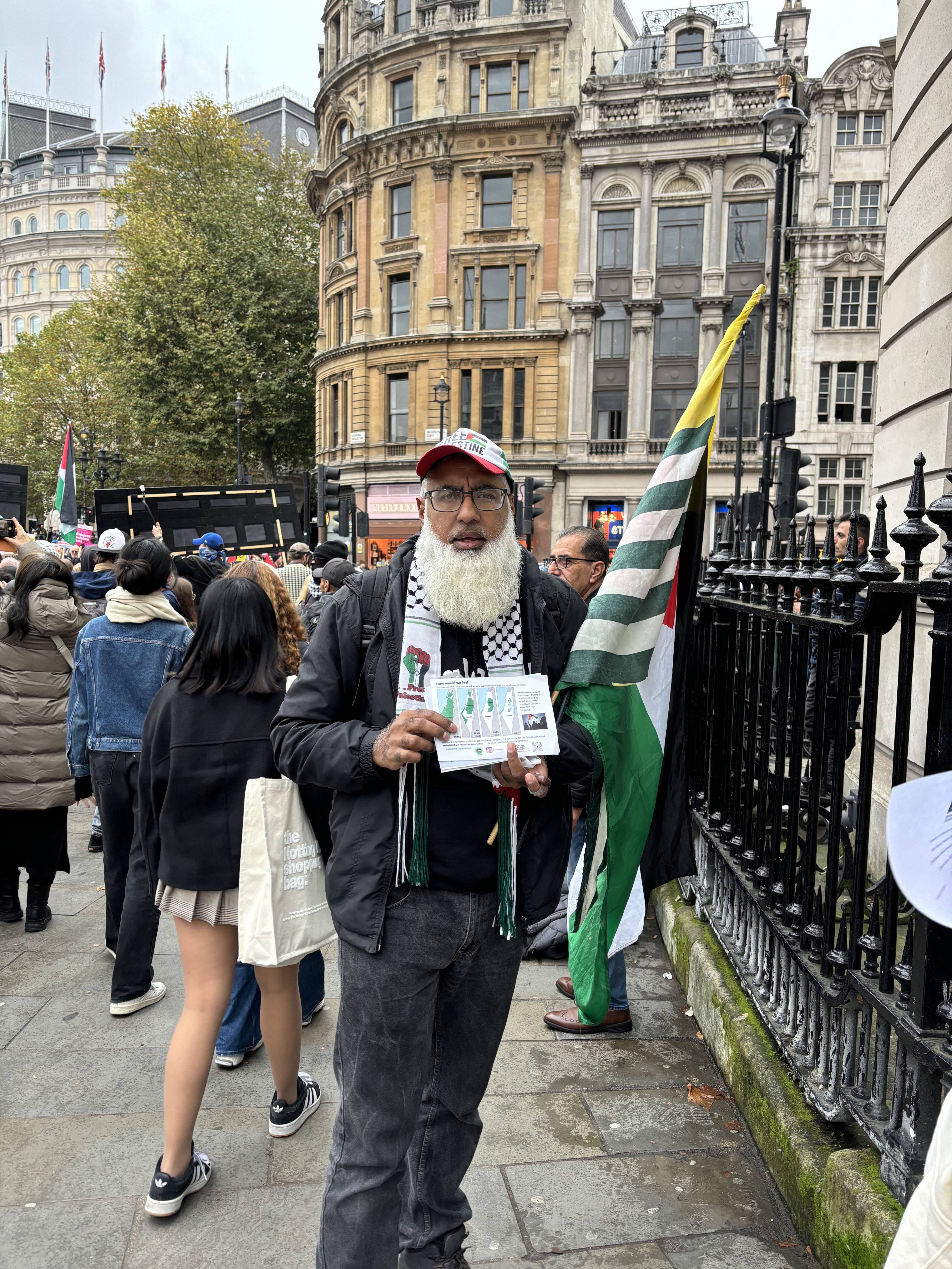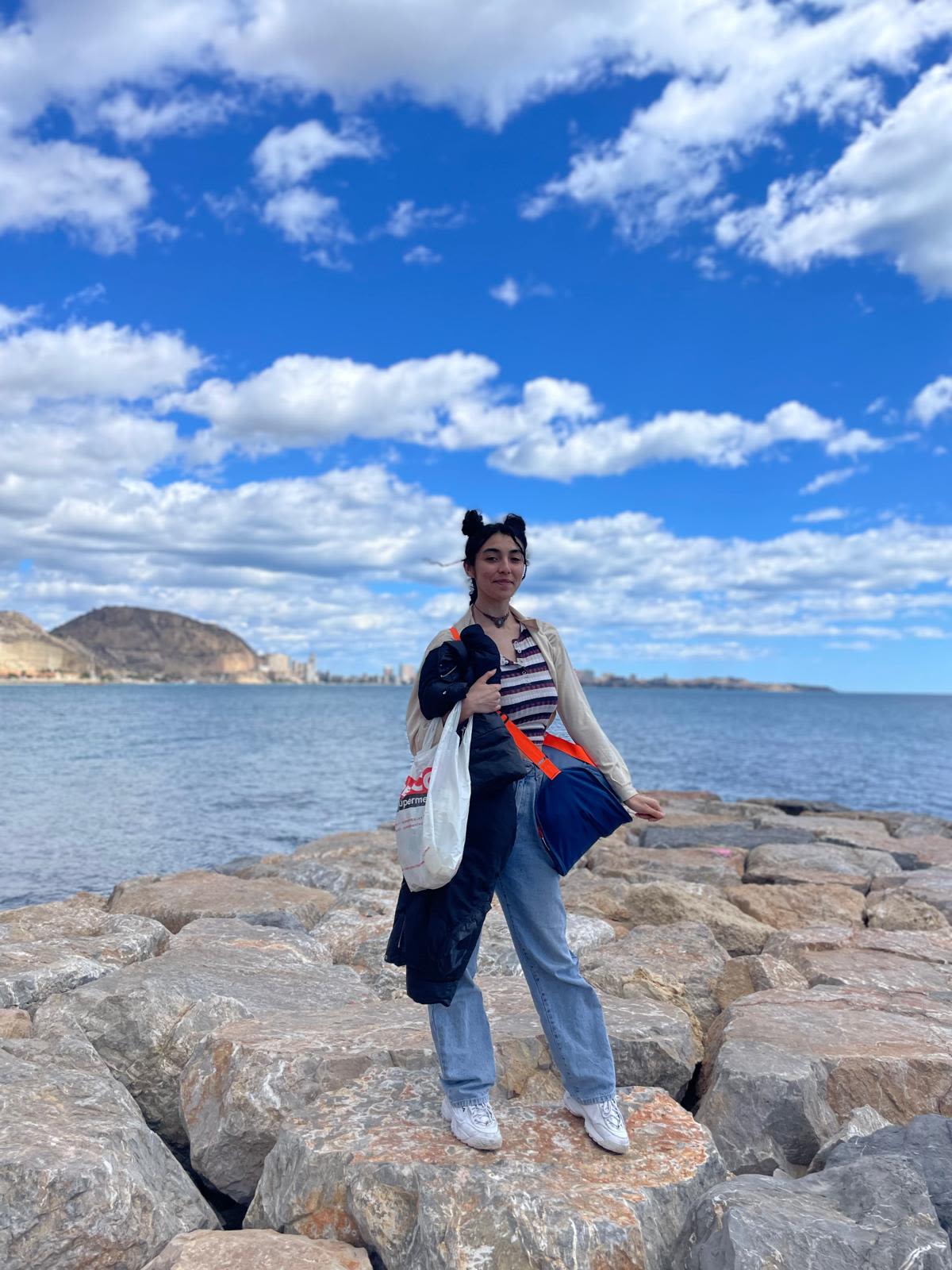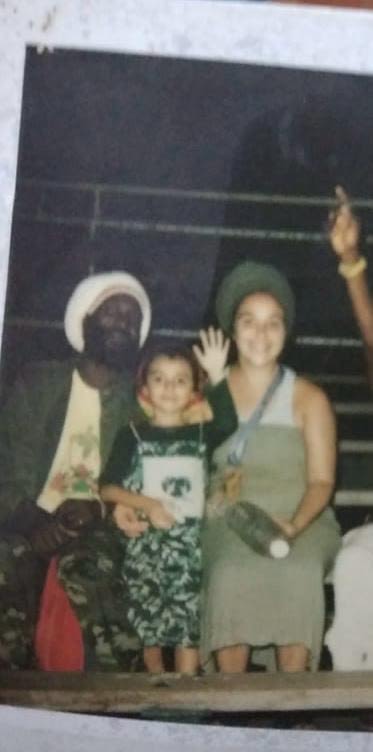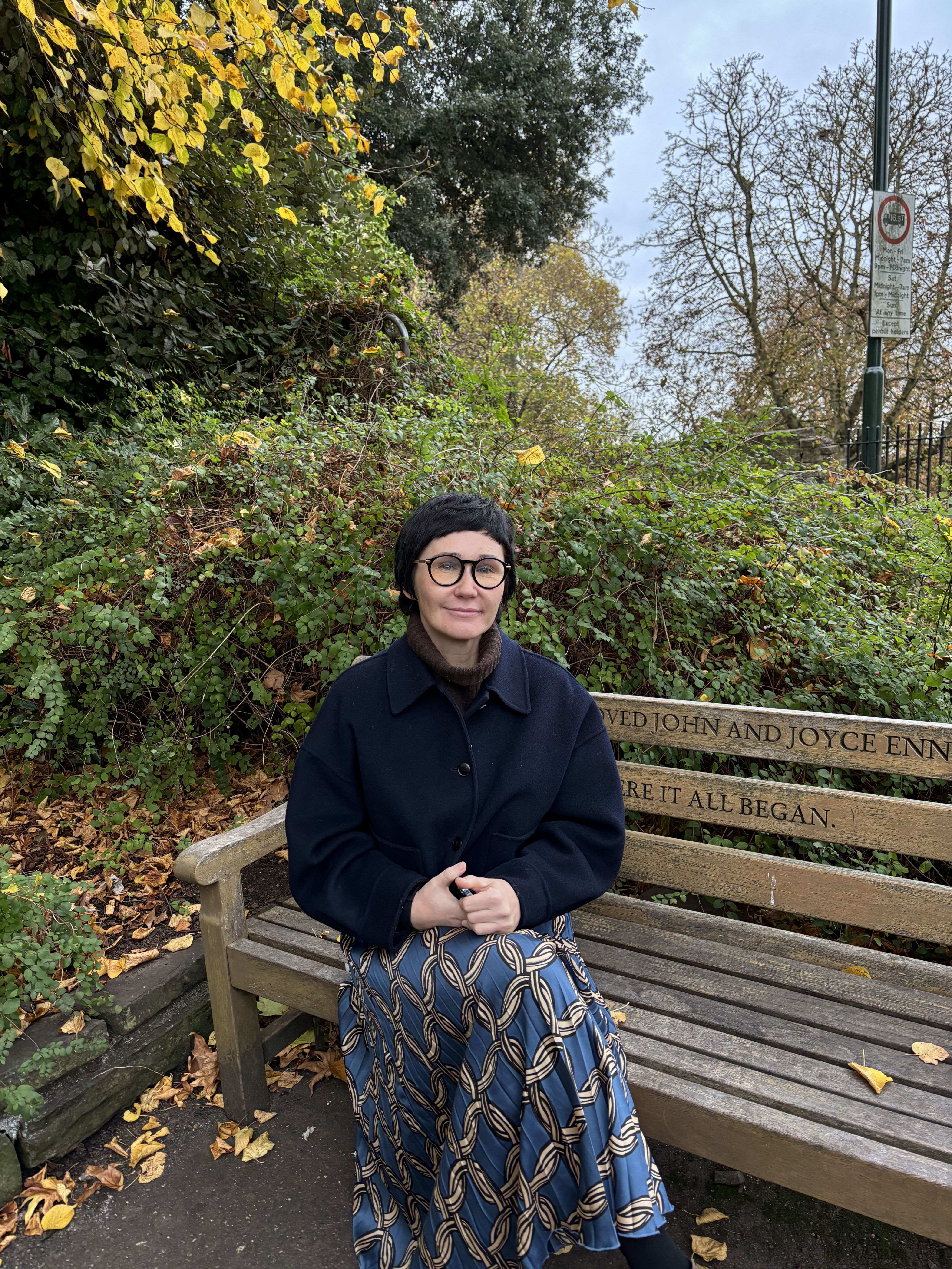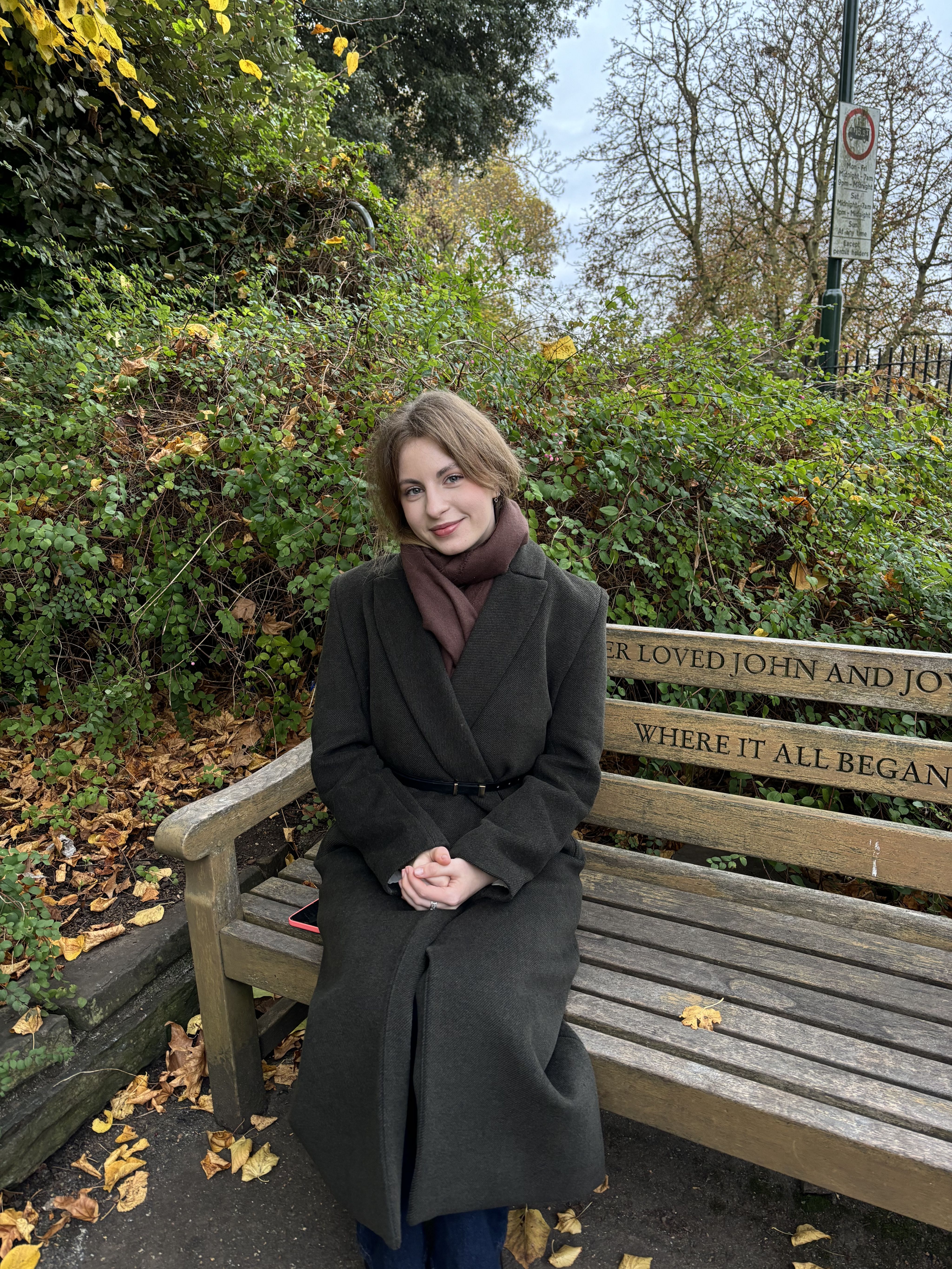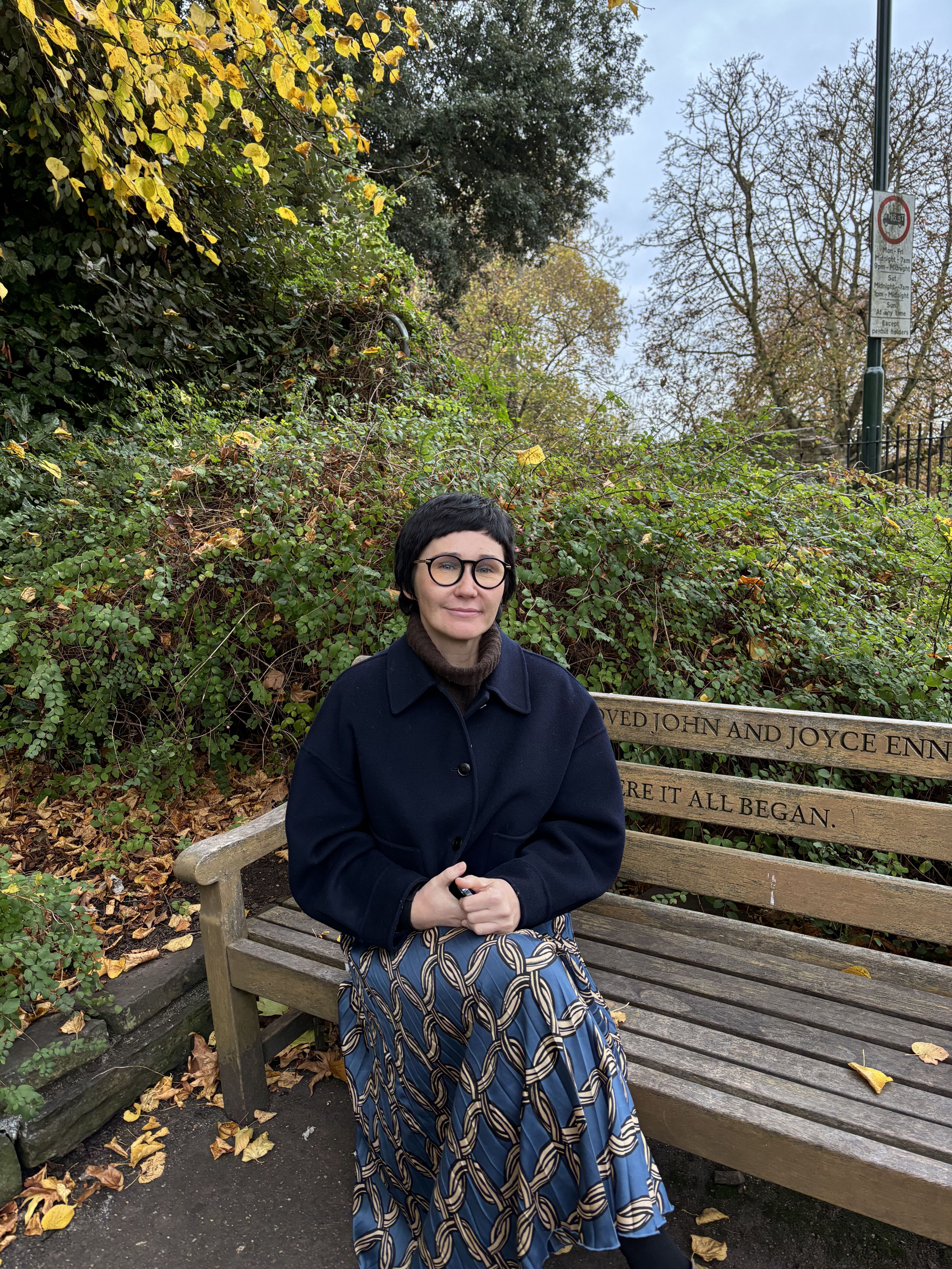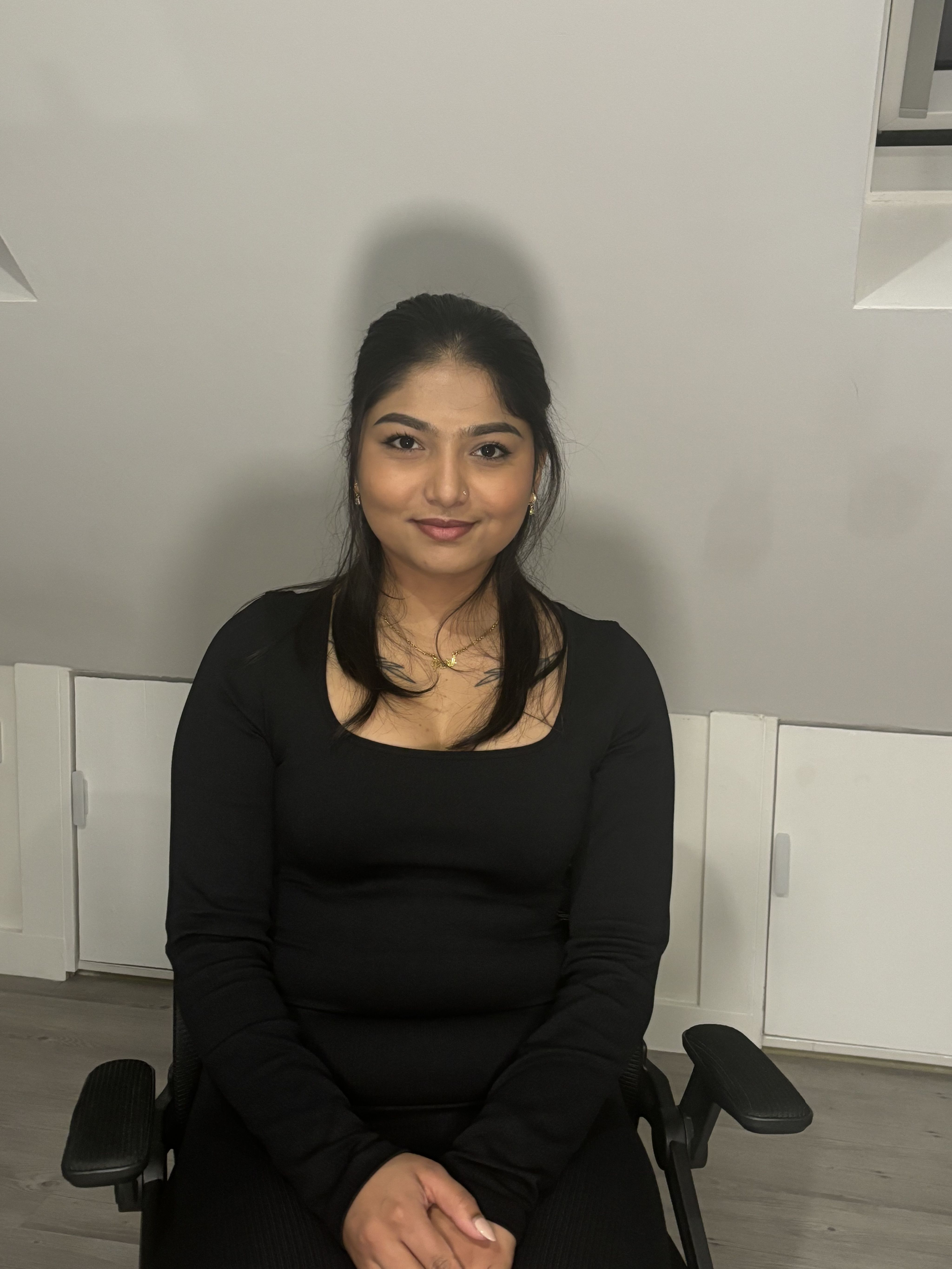Facing Challenges, Finding Hope: Navigating Immigration in Britain
By Utku Huseyin
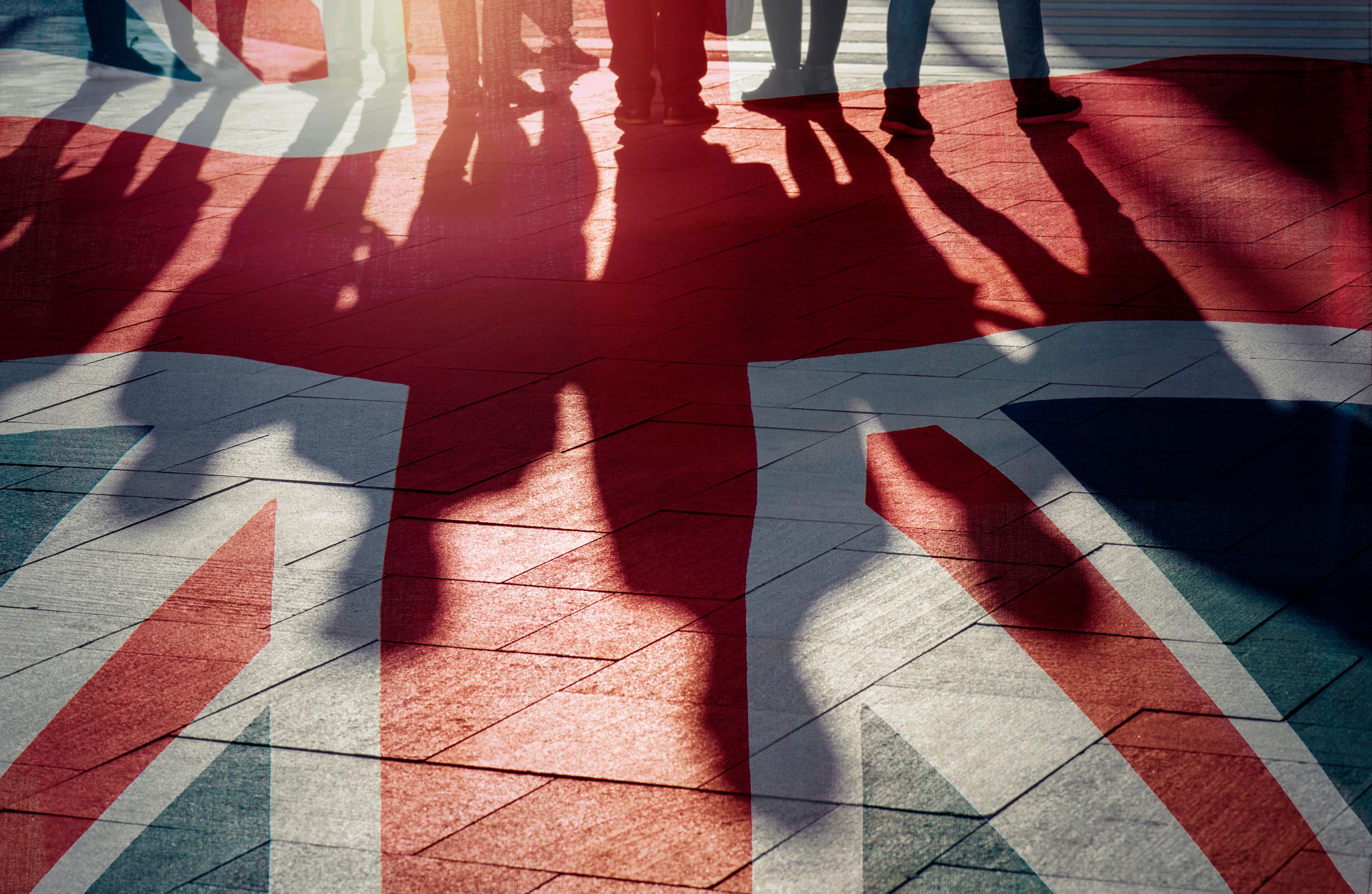
In the quiet of the night, a piercing beam tore through the dark sky. Lights sparked, and for a fleeting moment, it could have been mistaken for a shooting star. But as the ground shook violently, screams broke the silence and the realisation struck. It wasn’t a wish being granted, but a bomb being dropped. Russia had invaded.
Life changed overnight for Maryna Sera, a 22-year-old from Ukraine. “I just woke up one morning, and my parents said ‘Maryna, you’re packing,’” she recalls. It wasn’t a decision. It was survival.
More than six million Ukrainians had sought refuge in Europe after Russia’s invasion, with approximately 242,000 arriving in the UK by June 2024, according to the Migration Observatory.
Yet for many like Sera, reaching the UK marked not the end of her struggles but the beginning of new ones. Free from war but burdened by isolation, racism, cultural differences, and the constant need to prove her place in an unfamiliar land, her fight for a better life continued.
The UK has been both a sanctuary and a struggle, for Sera. “My first year here was emotionally and mentally hard,” she shares, her voice heavy with the ache of homesickness and isolation. The cultural divide was glaring. “People have different verges in life, different understandings of things,” she says, highlighting a profound sense of alienation.
How do you balance building a new life here while staying connected to your family back home?
How do you balance building a new life here while staying connected to your family back home?
In a new place, Maryna Sera finds comfort in small moments like this - Photographed by Utku Huseyin
In a new place, Maryna Sera finds comfort in small moments like this - Photographed by Utku Huseyin
A glimpse into Maryna Sera's childhood, a world left behind but never forgotten - Photo courtesy of Maryna Sera
A glimpse into Maryna Sera's childhood, a world left behind but never forgotten - Photo courtesy of Maryna Sera
Pariksha Ghimire, an international student from Nepal, echoes similar challenges, though she finds comfort in adaptation. “The way we grew up is different from how people grew up here, and I think that’s how people learn about life,” she says. Nostalgia colours her words as she recalls the bittersweet memories of home, a world away yet so vivid in her mind. “Friends become family when you’re not home, you create your own home,” Ghimire says with a smile. “Being away you might need to have an open mind, an open heart.”
Others, like Monika Tame, a Polish immigrant of 18 years, have endured direct hostility. “During Brexit, I had a few comments towards me randomly in the shop or on the street,” she recalls.
Far from home, Pariksha Ghimire creates her own sense of belonging - Photographed by Utku Huseyin
Far from home, Pariksha Ghimire creates her own sense of belonging - Photographed by Utku Huseyin
Pariksha Ghimire and her family, a bond unshaken by distance - Photo courtesy of Pariksha Ghimire
Pariksha Ghimire and her family, a bond unshaken by distance - Photo courtesy of Pariksha Ghimire
The word ‘immigrant’ often carries the weight of misunderstandings and prejudice. For Robert Suddrey, an immigration lawyer with over 15 years of experience, it’s a term that cuts to the core of humanity. “Immigration, or the term immigrant, is someone who’s just from another country. You could take a genuine negative immigration situation and then take a paintbrush and paint all immigration with that one viewpoint,” Suddrey explains. Brexit has only deepened these challenges, casting a long shadow over the discourse. In its aftermath, the post-Brexit atmosphere has fuelled division, transforming what should be a celebration of diversity into a struggle against rising hostility.
Brexit: Unpacking the Impact
Audio feature created by Utku Huseyin, Photo by Rocco Dipoppa on Unsplash
Audio feature created by Utku Huseyin, Photo by Rocco Dipoppa on Unsplash
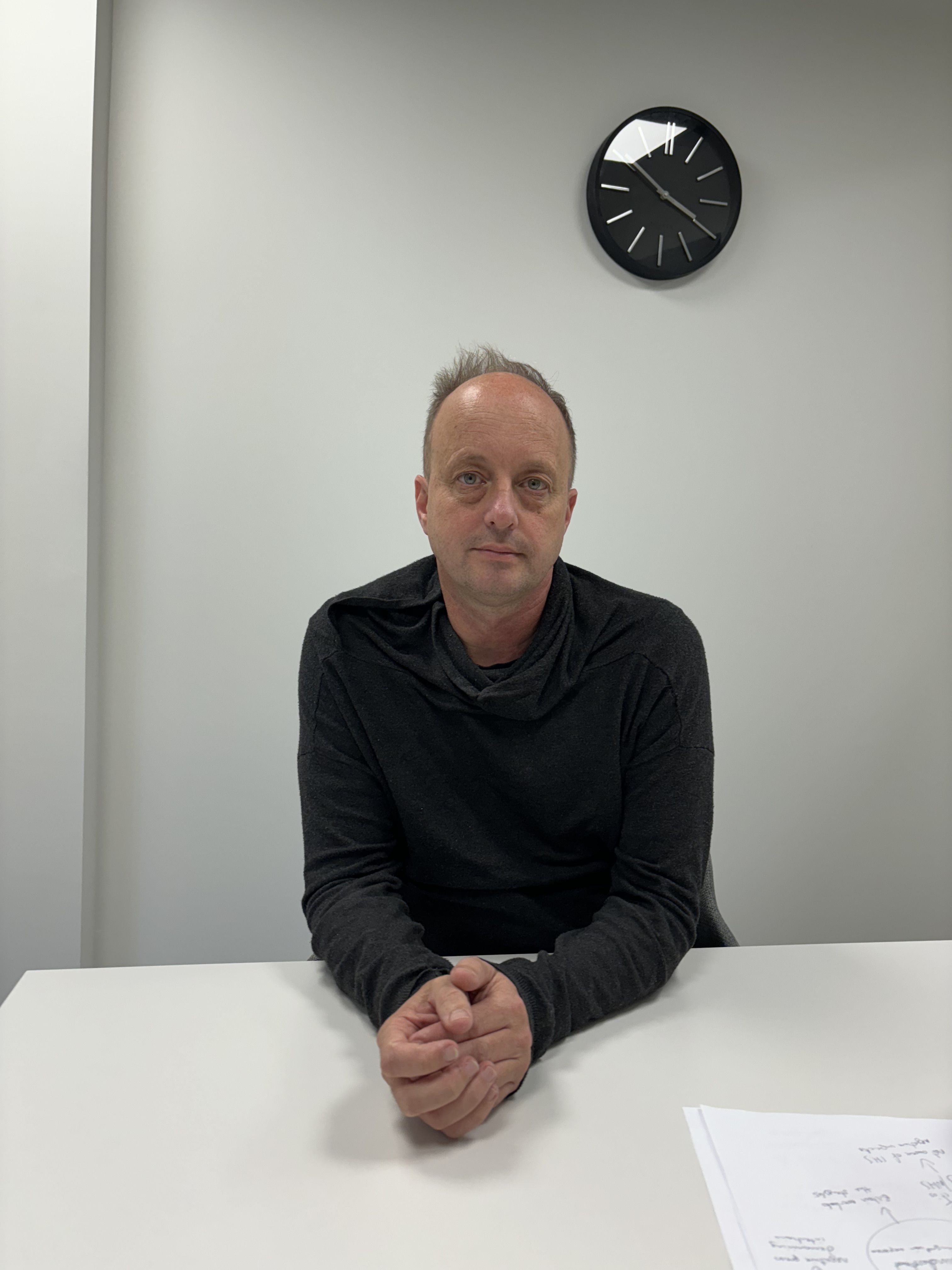
Peter Green, a trustee at Dorset Race Equality Council, emphasises the lasting damage caused by Brexit. “It was a huge undoing of a lot of the good work around integration and acceptance of difference,” he says. A national mood of intolerance took root. “People felt empowered to make aggressive and nasty comments.”
Green highlights how public discourse has taken a toxic turn, “The national narrative over the last three years, because of the adverse criticism of the so-called small boats coming in, has soured the debate,” he says. “We need a proper sensible balance debate about immigration.”
What advice would you give to immigrants facing challenges in adapting to life in a new country?
What advice would you give to immigrants facing challenges in adapting to life in a new country?
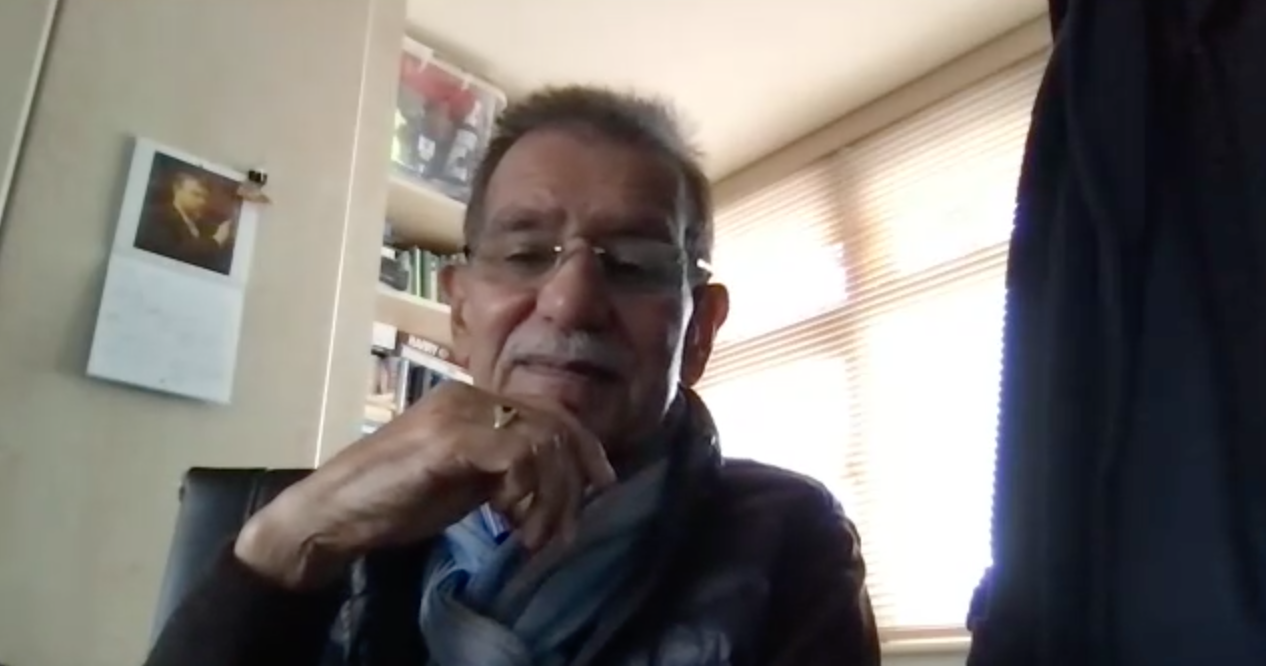
For Pete Wearden of Stand Up to Racism Bournemouth, the fight against this rising tide of fascism and hatred is urgent. “You need to be clear that these people have a Nazi ideology,” he states bluntly, drawing from decades of experience in battling extremism since the 1970s. His words carry the weight of history and the immediacy of the present, sharpened by his grave concern over recent events. “The fact that Tommy Robinson supporters attacked refugees’ hotels and mosques in the summer is very dangerous.”
Wearden critiques the government’s rhetoric, which he believes scapegoats vulnerable groups to divert attention from systemic failures. “People in power have been soaking this up by going on about the boats,” he says. “There’s no such thing as an illegal refugee in international law. We should stop demonising refugees.”
What do you think are the biggest misconceptions about immigrants?
What do you think are the biggest misconceptions about immigrants?
Frustrated by this damaging narrative, Wearden calls for a focus on critical issues like healthcare and employment. “The government is using this to distract from their failures,” he says. But his message is also one of empowerment. “Ordinary people have to stand up and defend their communities, defend their neighbours. Say no to racism, say no to fascism. We will not go back to the 1930s,” he asserts, his words a powerful rallying cry.
What drove your passion for fighting fascism?
What drove your passion for fighting fascism?
Wearden lives by his principles, organising a coach filled with supporters from Southampton and Bournemouth to attend the Stand Up to Racism march on October 26th. For him, activism is not just a stance, it’s a responsibility. “No discrimination, no divisions,” he says simply, but with the force of a lifetime devoted to justice.
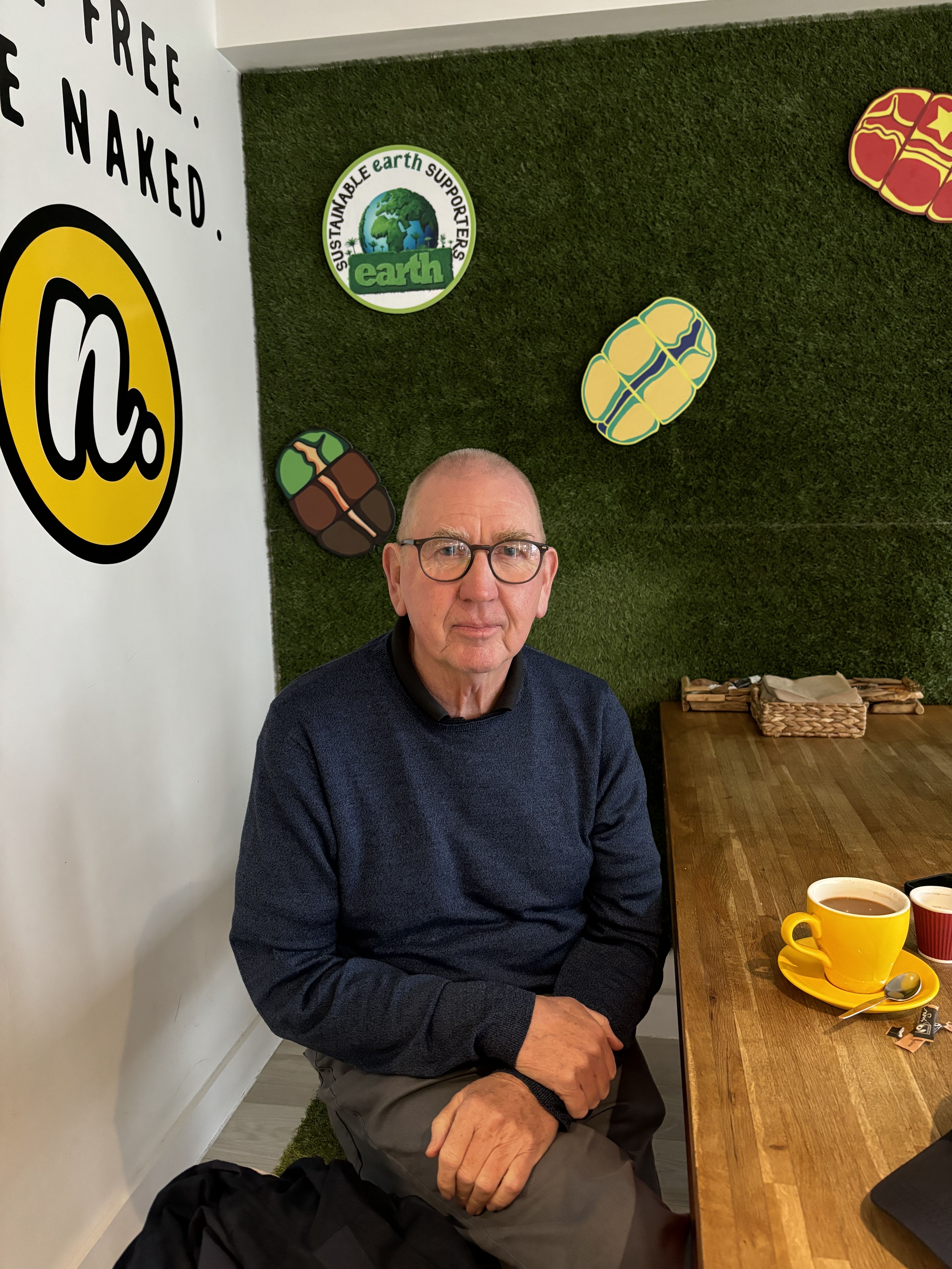
Every chant fuels the fire for change - Photographed by Utku Huseyin
Every chant fuels the fire for change - Photographed by Utku Huseyin
Banners of protest carrying messages that cannot be ignored - Photographed by Utku Huseyin
Banners of protest carrying messages that cannot be ignored - Photographed by Utku Huseyin
Bold messages, louder voices - Photographed by Utku Huseyin
Bold messages, louder voices - Photographed by Utku Huseyin
A photo that speaks volumes - Photographed by Utku Huseyin
A photo that speaks volumes - Photographed by Utku Huseyin
A snapshot of resistance, a call for justice - Photographed by Utku Huseyin
A snapshot of resistance, a call for justice - Photographed by Utku Huseyin
In the streets, the fight for change is never silent - Photographed by Utku Huseyin
In the streets, the fight for change is never silent - Photographed by Utku Huseyin
A powerful visual of the fight for justice and equality - Photographed by Utku Huseyin
A powerful visual of the fight for justice and equality - Photographed by Utku Huseyin
Posters that speak louder than words - Photographed by Utku Huseyin
Posters that speak louder than words - Photographed by Utku Huseyin
Captured in the heart of the movement - Photographed by Utku Huseyin
Captured in the heart of the movement - Photographed by Utku Huseyin
Messages for a better future - Photographed by Utku Huseyin
Messages for a better future - Photographed by Utku Huseyin
Witnessing the strength of unity in the fight for equality - Photographed by Utku Huseyin
Witnessing the strength of unity in the fight for equality - Photographed by Utku Huseyin
William Brook-Hart, a volunteer with the Southampton & Winchester Visitor Group, stood shoulder to shoulder with Wearden at the protest. After seven years of volunteering with the charity, Brook-Hart remains unwavering in his belief that collective action can counter hate. “There’s a small but vocal minority of racists in this country trying to make life difficult for people. It’s up to everyone in the community to play their part in resisting that.” Together, as they marched through London, their commitment to a more inclusive future was on full display.
Watch: Through the Streets, A Fight for Justice
Filmed and created by Utku Huseyin
Filmed and created by Utku Huseyin
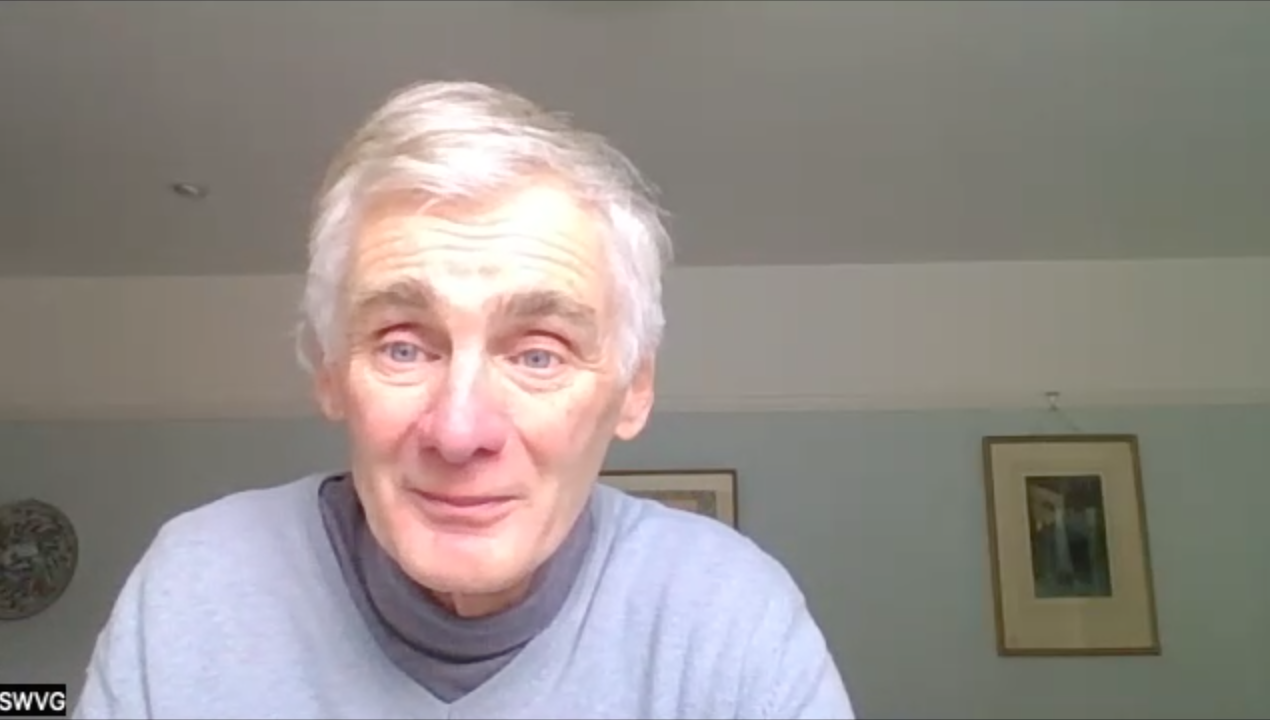
Alimony Bengura and friends, standing strong for what they believe in - Photographed by Utku Huseyin
Alimony Bengura and friends, standing strong for what they believe in - Photographed by Utku Huseyin
Jason Langford and his daughter driven by hope and the will to make a difference - Photographed by Utku Huseyin
Jason Langford and his daughter driven by hope and the will to make a difference - Photographed by Utku Huseyin
Maz Garsire shows a face of resilience in the movement for change - Photographed by Utku Huseyin
Maz Garsire shows a face of resilience in the movement for change - Photographed by Utku Huseyin
Sijaad Hussain is part of the force for a brighter future - Photographed by Utku Huseyin
Sijaad Hussain is part of the force for a brighter future - Photographed by Utku Huseyin
Immigration remains one of the most debated topics in UK politics, but Neil Duncan-Jordan, Labour MP for Poole believes addressing its complexities is essential. “Why are people fleeing war-torn countries? Partly because we’re involved, either arming some of those people to drop bombs on each other, or we’re connected in some way through our foreign policy,” he says. “We can’t wash our hands of this and say it’s nothing to do with us."
While acknowledging fears within communities, Duncan-Jordan firmly condemns violence and discrimination. “Refusing to talk about it isn’t going to help. We have to have a conversation that is grown-up, but also done in a way that treats both sides with respect.” Reflecting on recent riots and the attempted burning of a refugee hotel, he calls such acts “unacceptable criminal behaviour” that no modern, democratic society should tolerate.
Suddrey also challenges the narrative that the UK shoulders a disproportionate burden, “I don’t think the UK’s unique. Many countries take in refugees. In the Middle East, some have taken millions.”
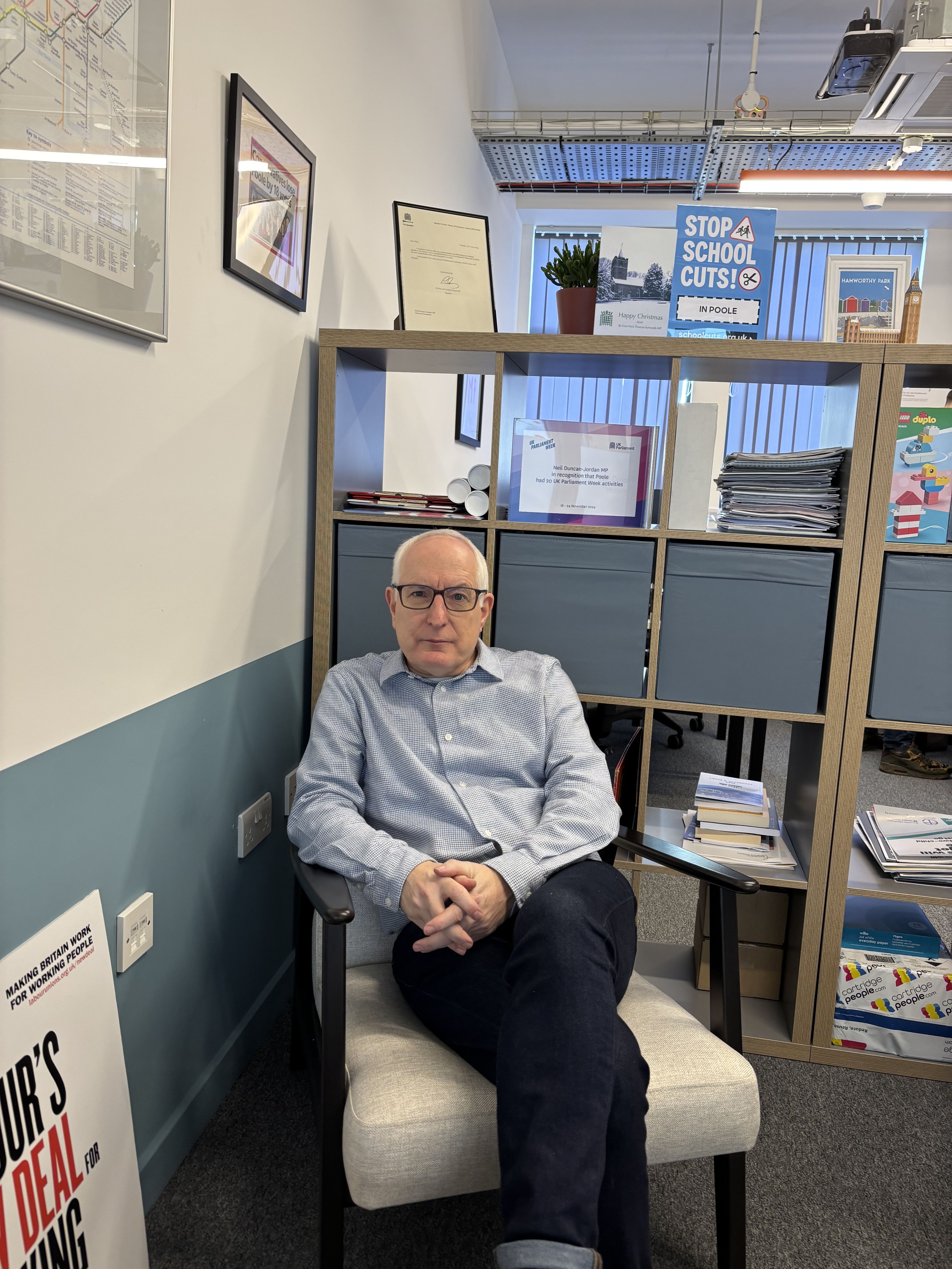
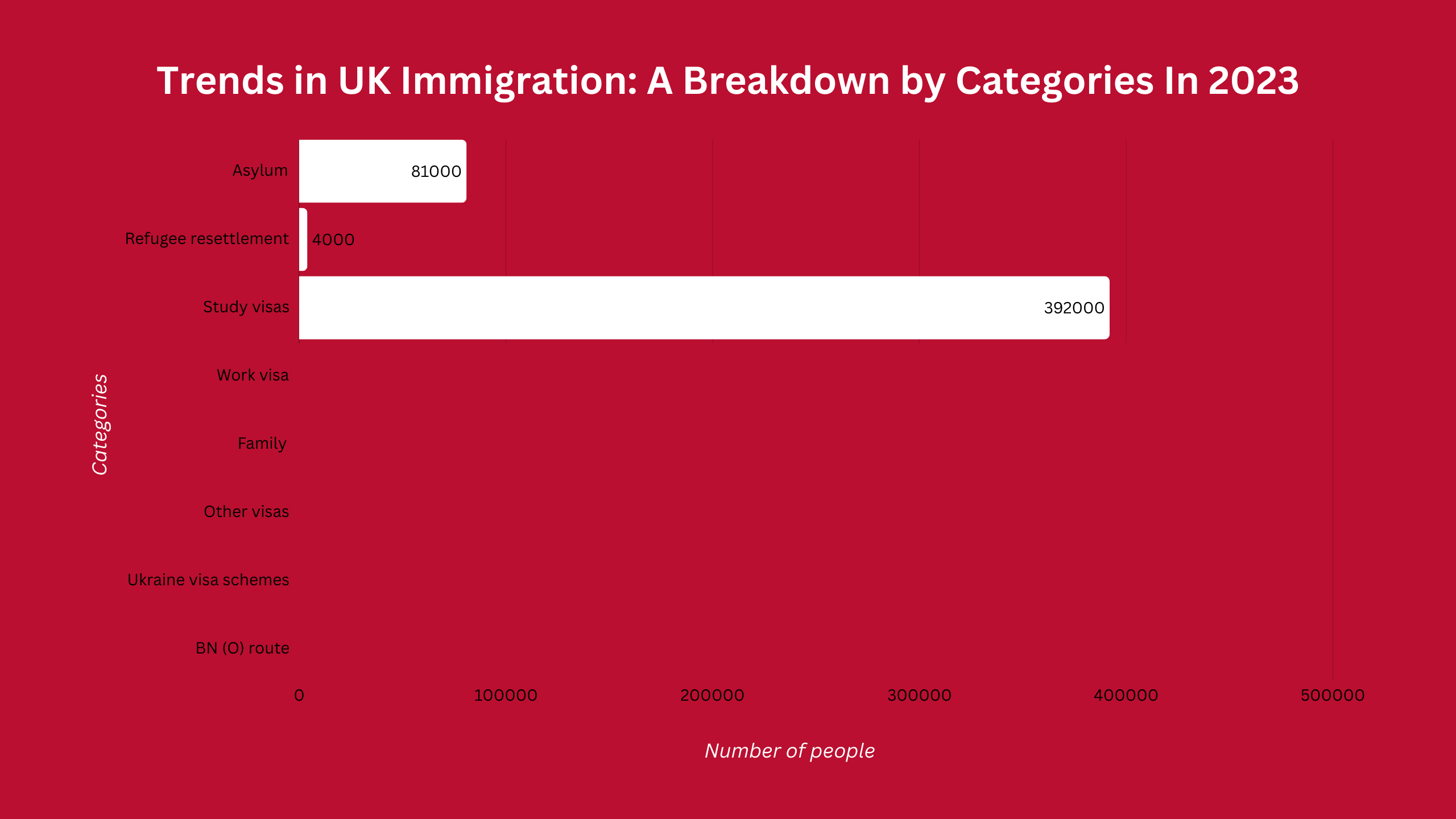
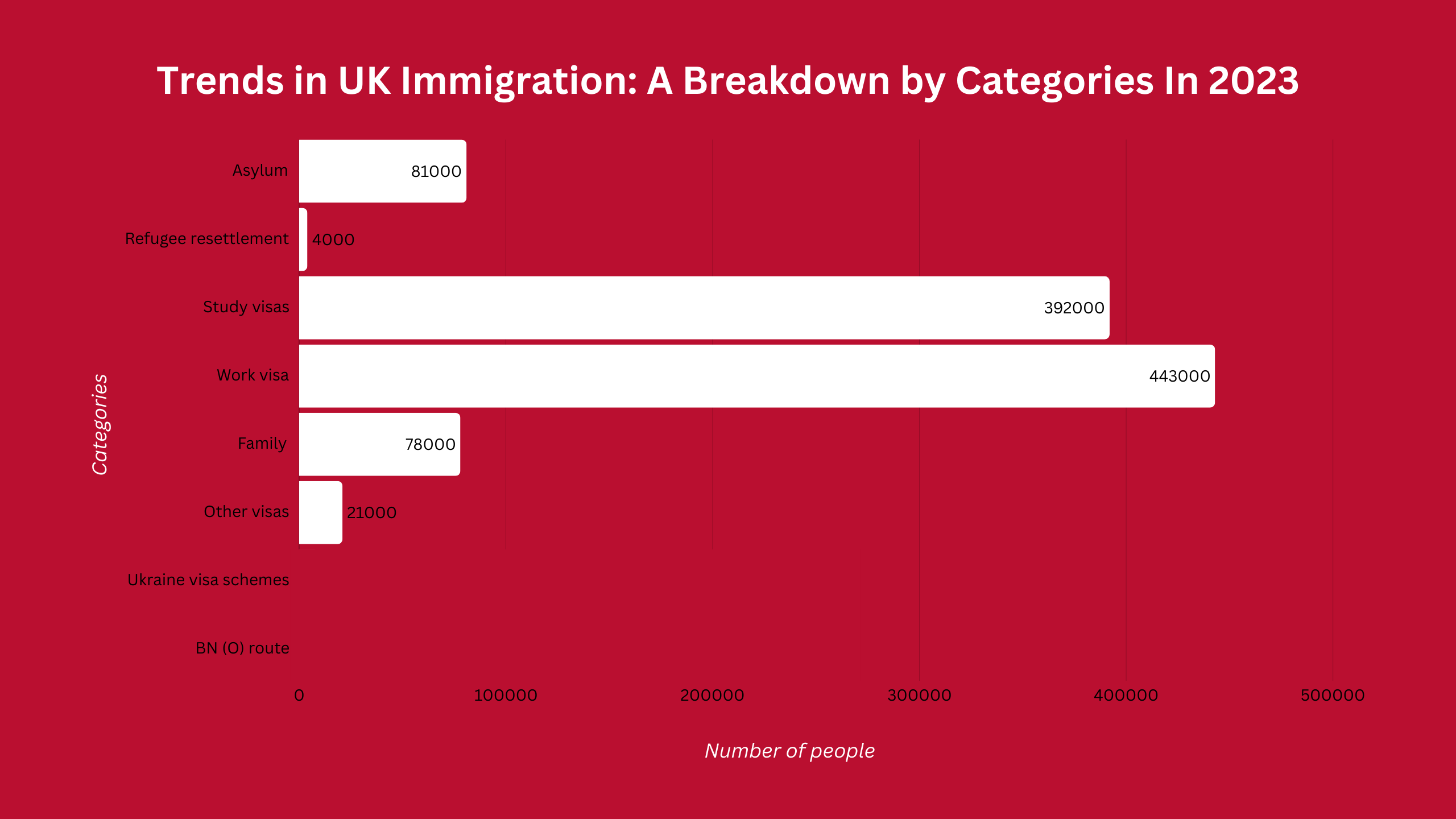
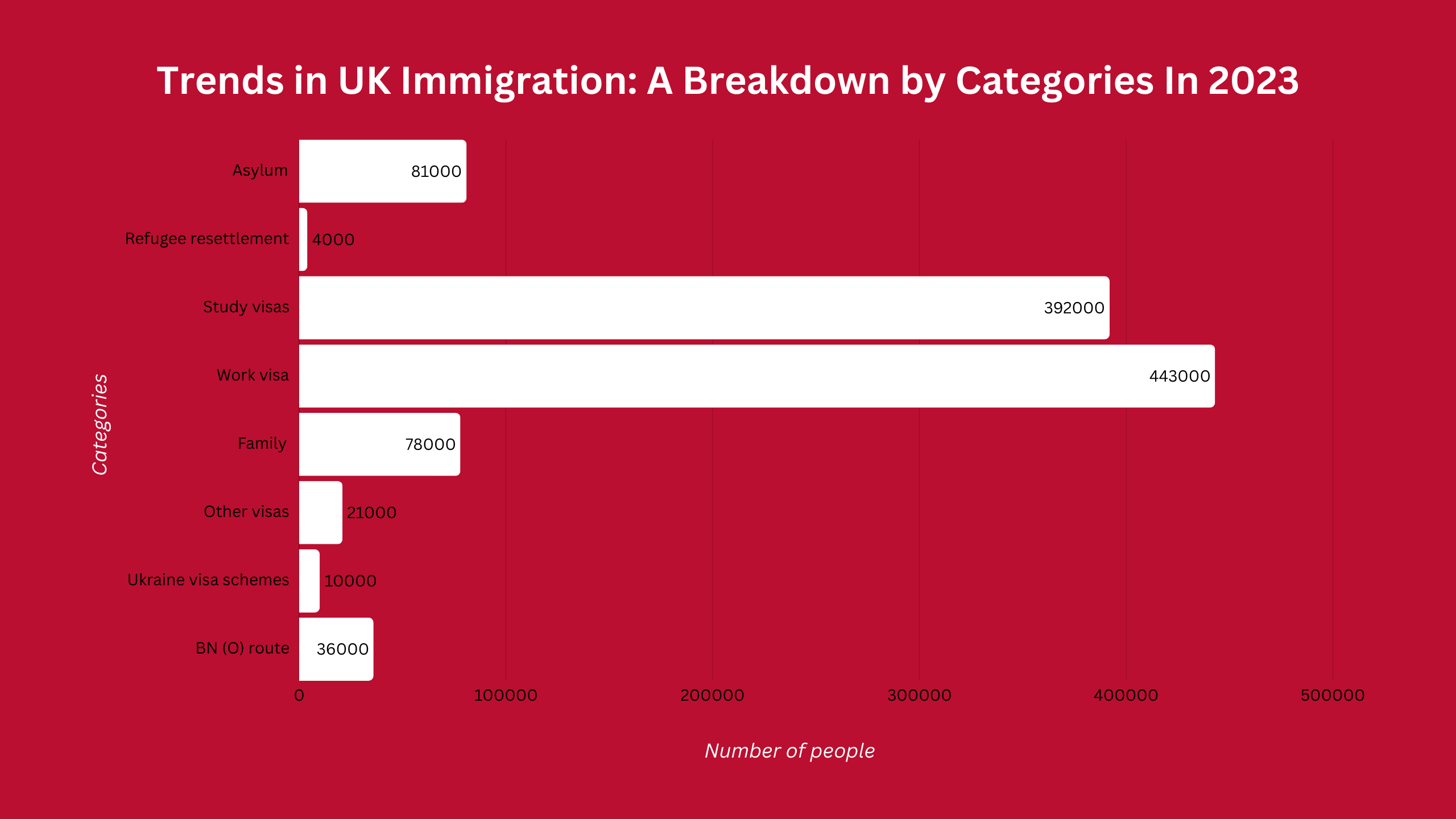
He highlights the emotional and psychological toll endured by refugees, remarking, “They have a difficult journey, a difficult arrival, and then the feeling of, ‘Am I the alien here? Or am I the hostility?’” His words strike at the heart of the immigration debate, “We are a country of people of many differences. Is that negative, or is it positive? Do we celebrate our differences, or do we put barriers up because of them?”
In your experience, how has the UK's immigration policy impacted the people you work with?
In your experience, how has the UK's immigration policy impacted the people you work with?
For Sky Caesar, 24, navigating these questions is a lived experience. Born in Canada to parents of Guyanese and Italian-Argentinian descent, Caesar’s life has been a tapestry of cultures shaped by time spent between the Caribbean and Europe. Each place has left a memorable mark on her identity. Yet, her experiences of prejudice, have often been subtle but no less impactful. “You couldn’t call it outright discrimination, but microaggressions, absolutely,” she says candidly. “A few jokes that hurt a little bit. I can’t deny and say that I don’t feel little differences.” Despite this, Caesar faces these challenges with resilience and grace, embracing her identity with pride. “Most of the time, it’s curiosity, and I don’t mind curiosity. I’m really proud and happy to explain all the differences.”
How would you describe the media's perception of immigrants from your community, and has this perception affected you?
How would you describe the media's perception of immigrants from your community, and has this perception affected you?
Sera reflects on her early experiences in the UK with a sense of vulnerability that reveals the emotional toll of adapting to a new culture. “When I first arrived, my English was good, but it wasn’t fluent,” she recalls. “I was working in a pub as a waitress, and sometimes I felt a bit discriminated against because of my English.” She pauses, gathering her thoughts. “You know how everyone in the UK has different accents? Sometimes it’s hard to understand what a person is saying. Back then, it was my first month in the UK, so I was confused.” Her voice softens as she continues, describing how the well-meaning corrections from colleagues felt like personal failures. “It made me sad at the time,” she admits, the memory of those moments still raw.
Embracing new horizons, one journey at a time - Photo courtesy of Sky Caesar
Embracing new horizons, one journey at a time - Photo courtesy of Sky Caesar
The strength of her story begins here, with family by her side - Photo courtesy of Sky Caesar
The strength of her story begins here, with family by her side - Photo courtesy of Sky Caesar
Can you share any success stories or memorable moments from your work?
Can you share any success stories or memorable moments from your work?
In your opinion, what could be improved in the current system to better support immigrants?
In your opinion, what could be improved in the current system to better support immigrants?
How would you describe the impact of the previous immigration policies under the Conservative government?
How would you describe the impact of the previous immigration policies under the Conservative government?
What are your thoughts on how politicians address immigration issues?
What are your thoughts on how politicians address immigration issues?
Brook-Hart views the political landscape with cautious optimism, seeing a glimmer of opportunity in the recent change of government. “There could be an opportunity for real improvement,” he acknowledges, noting the fresh perspectives of some new MPs. But he is also mindful of the complexity of the road ahead. “Politics is quite difficult. If the politicians have a hostile rhetoric that they’re pouring out, then that affects everything from the top down, and then that affects the people.”
Suddrey shares his concern about the cascading effects of misinformation. “The difficulty is who is answering those questions and who is filling people with information. Is that information true? Is it false? Is it biased? Is it fear-based?” His frustration is visible as he calls for greater transparency from those in power. “The government needs to advertise and emphasise positive immigration. There’s a lot of misinformation.”
Duncan-Jordan speaks with an unmistakable urgency about the role of media in shaping public opinion. “I have yet to read a British newspaper that has a positive immigration story, it’s always negative,” he says, calling attention to a deeply ingrained pattern in British society. “You blame somebody else so you don’t look at who’s really to blame. And that’s what our media does all the time.” This relentless negativity, he warns, not only fuels anti-immigration sentiment but also provides fertile ground for political groups like Reform to thrive.
Suddrey builds on this by exploring the connection between misinformation and human behaviour. “In the end what you believe gives birth to behaviour. It’s looking at our belief systems, looking at our fault processes, looking at the information that we’ve allowed to drink and eat into our minds and our souls.”
Reflecting on the changing attitudes toward immigration, Suddrey highlights how perceptions are moulded by the environment around us. “Our minds are fashioned by our environment. Sometimes public opinion is for immigration, sometimes it’s against it, sometimes it does not understand it.” His words serve as a poignant reminder of the fluid nature of perspectives and the need for continued advocacy to counter misinformation and promote understanding.
Sera’s voice carries both gratitude and a sobering dose of reality as she reflects on the shifting attitudes toward Ukrainian refugees. In the early days of the war, communities rallied with empathy and warmth, opening their doors in a collective show of humanity. But as the time has passed, that initial outpouring of compassion has begun to waver.
She notes how perceptions have evolved, with some growing uneasy about the growing number of arrivals. While many Ukrainians have embraced the opportunities, contributing to the economy and enriching local communities, others face struggles finding their place. “Everyone is different,” she says thoughtfully, acknowledging the complexities of migration and the varied responses it has received.
Immigrants contribute immeasurable value to the UK, not only through economic enrichment but by broadening perspectives. Tame captures this sentiment, saying, "I know lots of people from different backgrounds, different countries, and I think they already prove their intelligence, that they can support each other, and they’re nice people." She highlights their contributions in essential sectors like the NHS and law enforcement, challenging and reshaping opinions about immigration. Duncan-Jordan reinforces this, pointing to the nearby hospital in Poole, staffed by many foreign-born workers. “These people are performing a vital, public function," he says. "They’re not only providing a public service but also paying tax into our local economy. It’s a positive, a win-win—for them and the country as well."
Cultural traditions offer continuity amidst new surroundings. For Caesar and her family, Kwanza provides a sense of connection to African roots, blending gratitude and pride. “We dress in colourful clothes and wrap our hair as we would in the Caribbean,” she explains. Music is another anchor for her identity. “I listen to music in every language of where I’m from,” she says, describing how their home resonates with the sounds of her heritage.
Tame, finds harmony in blending Polish traditions with those of her English partner, merging festivities from both cultures into a seamless whole. Similarly, Sera holds tight to her Ukrainian identity through music and holidays. “I feel like I’m finding my perfect balance between my family back home and my life here,” she shares, highlighting how cultural practices are not just rituals but threads tying one to their past.
What aspects of British culture did you find the hardest to adapt to?
What aspects of British culture did you find the hardest to adapt to?
Monika Tame taking a moment to reflect in the midst of life’s journey - Photographed by Utku Huseyin
Monika Tame taking a moment to reflect in the midst of life’s journey - Photographed by Utku Huseyin
Duncan-Jordan expresses a fundamental truth about the UK’s identity, “We’ve been built on migration. Our society, like America, is a nation of immigrants. People who have come from different places renew our culture, enrich it, and change it. We adapt, we move forward.” However, he acknowledges the challenges, cautioning that “some of our facilities can’t cope with a huge influx of people,” emphasising the need for sustainable integration.
Mike Harle, former head of refugee advisory and community services at International Care Network Bournemouth, envisions a future where migrants can thrive while retaining their cultural identities. “We want to see refugees and all types of migrants integrate into the UK without losing their sense of who they are and where they’re from,” he explains.
Harle encourages newcomers to express the richness of their cultural and social backgrounds through art and community projects, urging them to stay connected to their heritage. “Find ways to express that while making a future here,” he advises, stressing the importance of preserving cultural connections while embracing new opportunities.
Are there any recent or upcoming projects or initiatives that you're excited about?
Are there any recent or upcoming projects or initiatives that you're excited about?
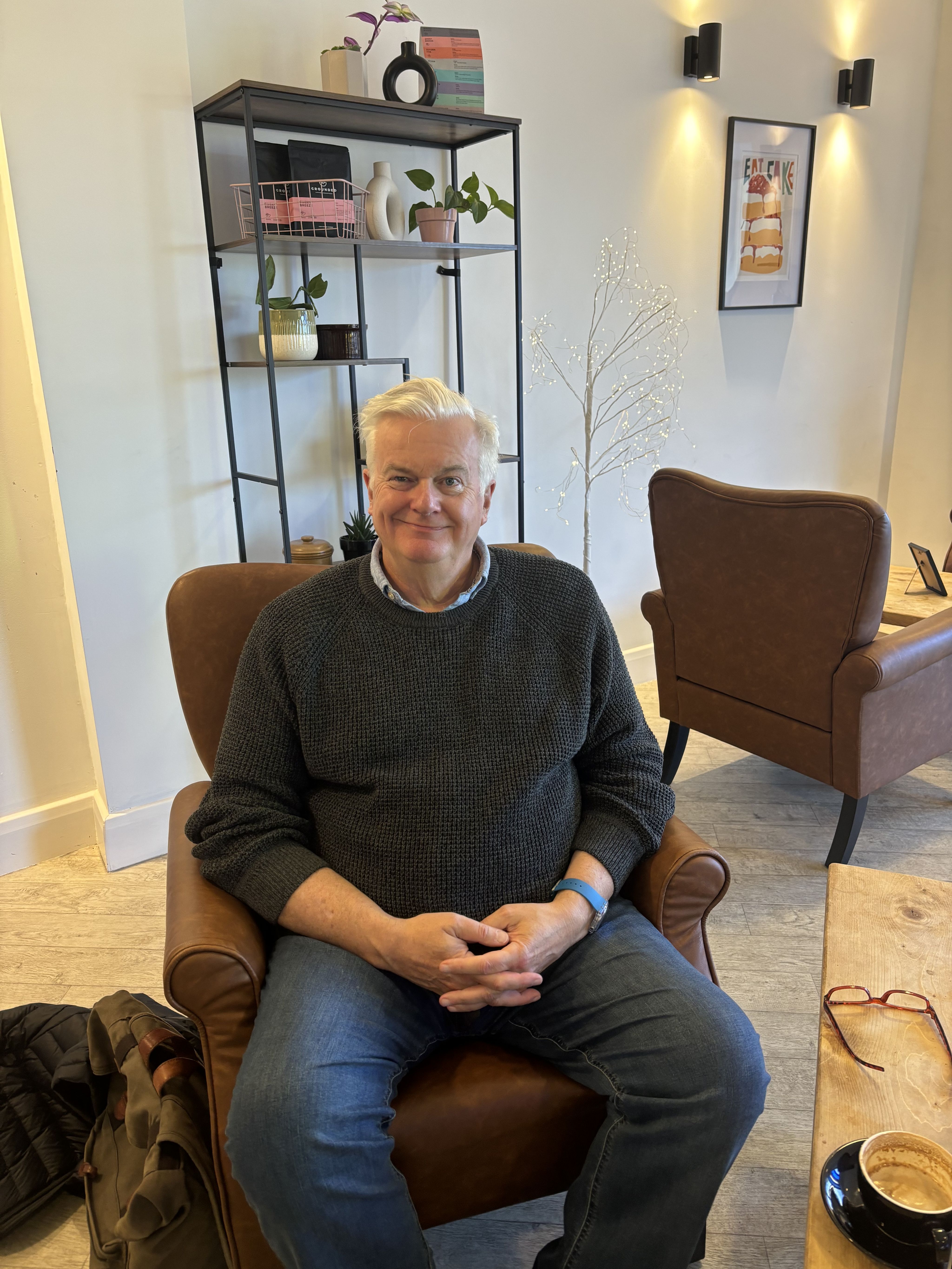
For Caesar, storytelling is a powerful tool for building empathy and understanding. She dreams of a world where everyone’s narratives are celebrated. “Can you imagine how many more fun films and TV shows we’d get if we had a story about someone who was like you, and someone who was like me, and all the in-betweens and beyond?”
Tame offers practical advice rooted in curiosity and openness. “Be open-minded to others’ cultures. My advice, which I implement in any area of my life, is curiosity. Have curiosity in everything around you,” she says.
Ghimire adds a nuanced perspective on fostering mutual respect and understanding. “You need to welcome people and then try to understand their beliefs and the psychology they’ve got as well,” she explains. “I’m not saying you need to completely adapt to it. Everybody has their own mind and own perspective. Understanding them and being patient enough to do so can help avoid going the wrong way.”
What advice would you give to other immigrants about building connections and adapting to a life in a new country?
What advice would you give to other immigrants about building connections and adapting to a life in a new country?
Reflecting on her journey, Sera encourages and hopes to others navigating displacement. “Don’t be scared, and be open to new challenges,” she advises. “Believe in yourself and be open to meeting other people. I’ve met good friends from different backgrounds, and it’s really interesting to learn about different cultures and parts of the world.”
Sera’s story is just one of many. Each is a testament to hardship, resilience and hope. Together, they remind us that the fight for equality and a brighter future continues, and as long as we support one another, the possibility for change remains.
Read the full story
Maryna's story
For Maryna Sera, a 22-year-old from Ukraine, moving to the UK was never part of a long-term plan.
Monika's story
Monika Tame’s decision to move to the UK 18 years ago was fuelled by curiosity and a desire to explore new opportunities.
Sky's story
At 24, Sky Caesar’s life tells a story of journeys across countries and cultures, shaped by her family’s rich and layered heritage.
Pariksha's story
Pariksha Ghimire’s decision to move to the UK was a leap into the unknown. Leaving Nepal to study computer science wasn’t part of her original plan, but it became a path toward new opportunities and self-discovery.
